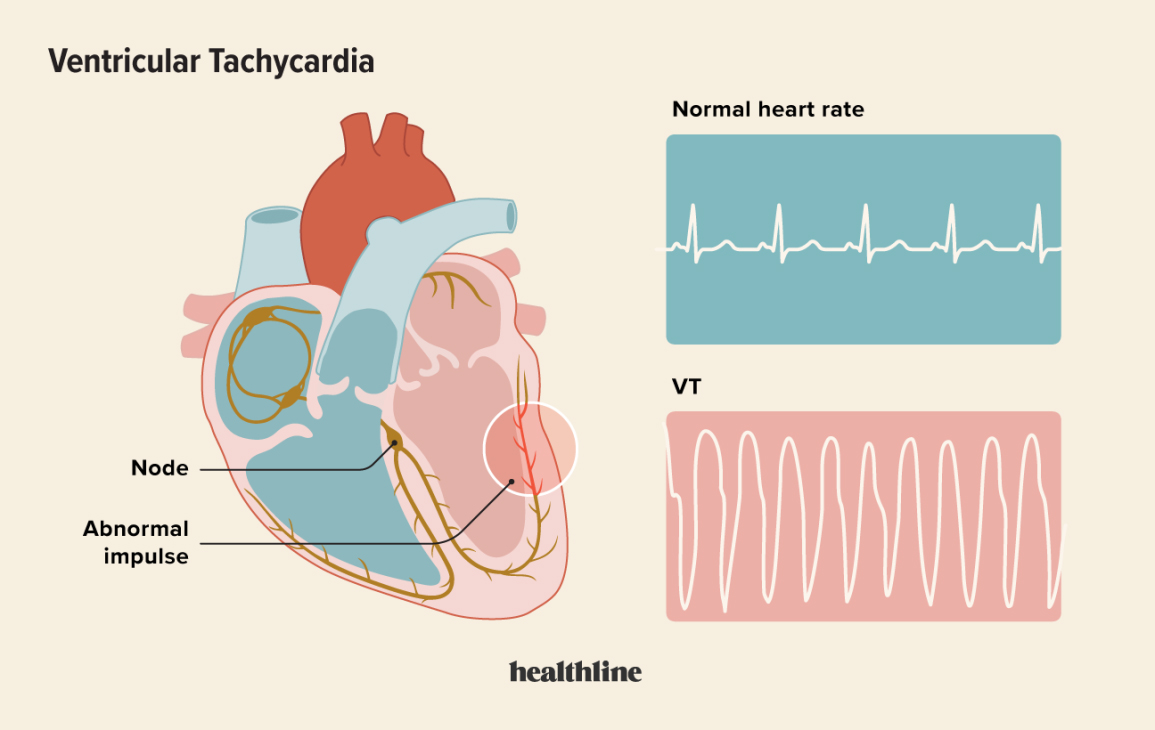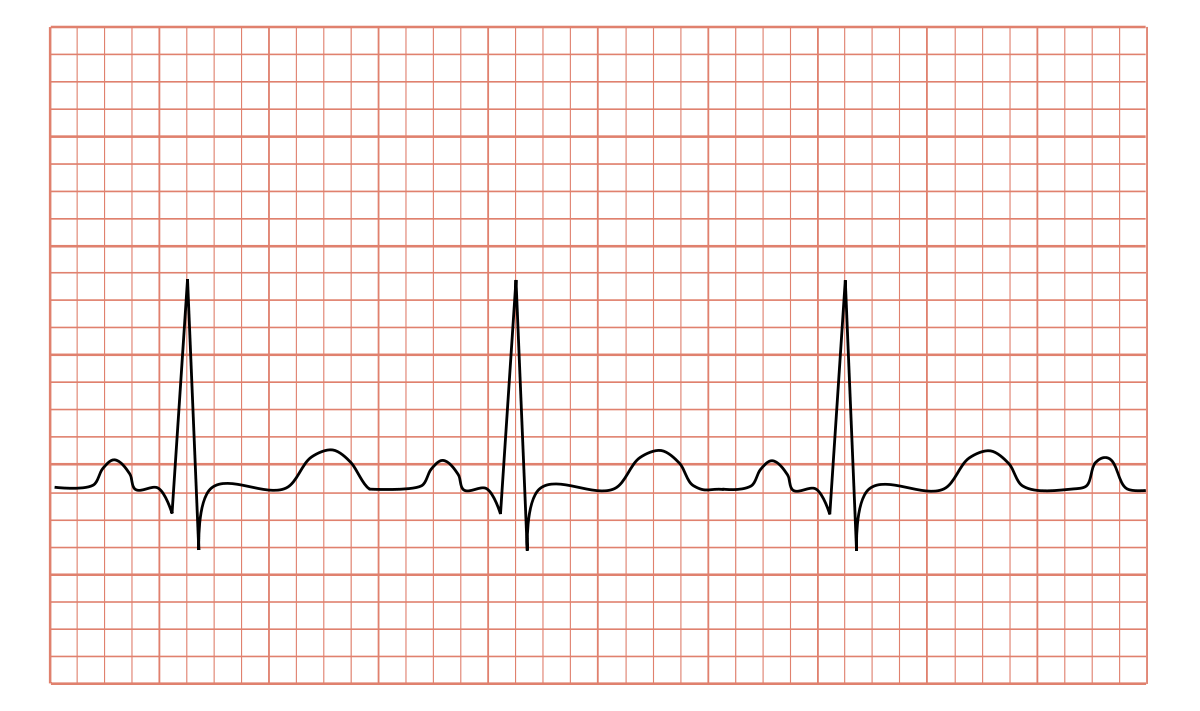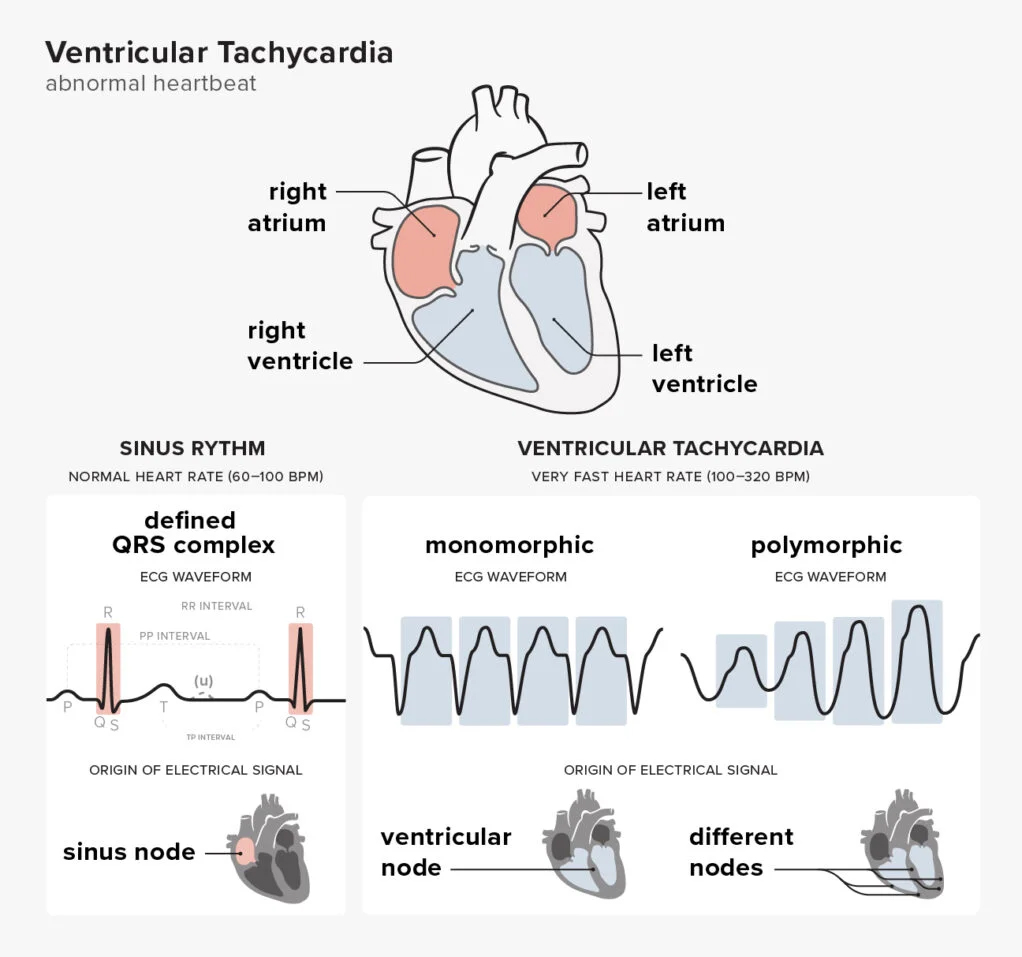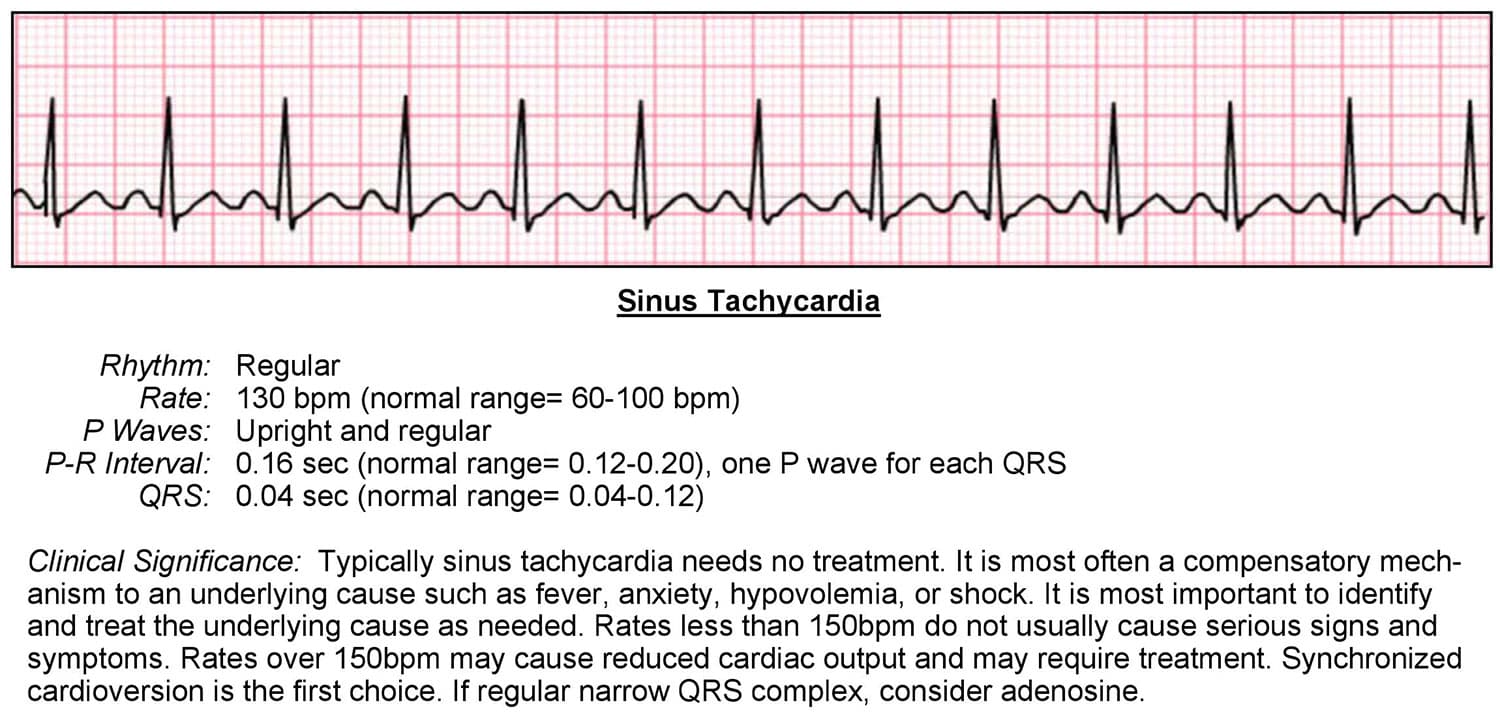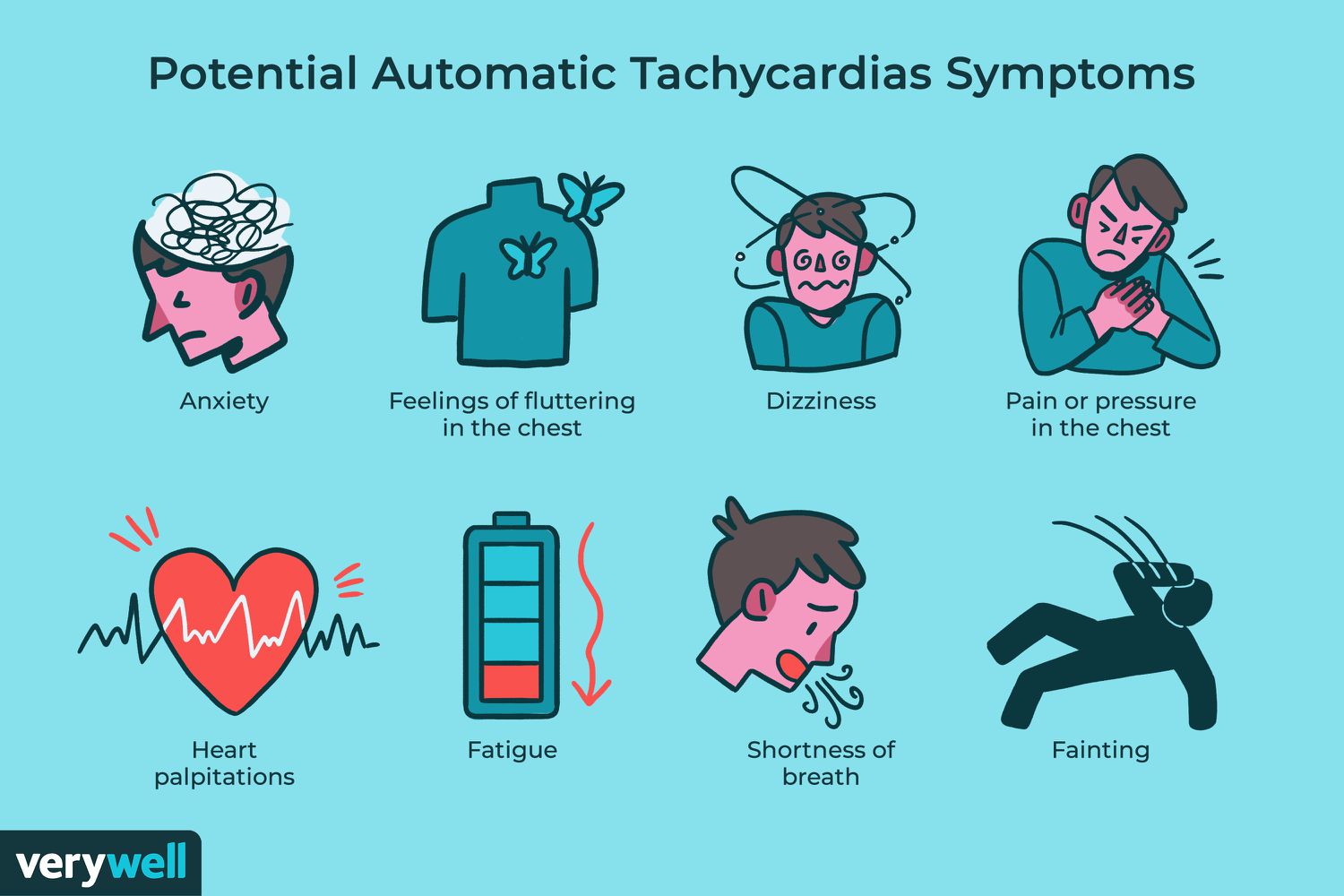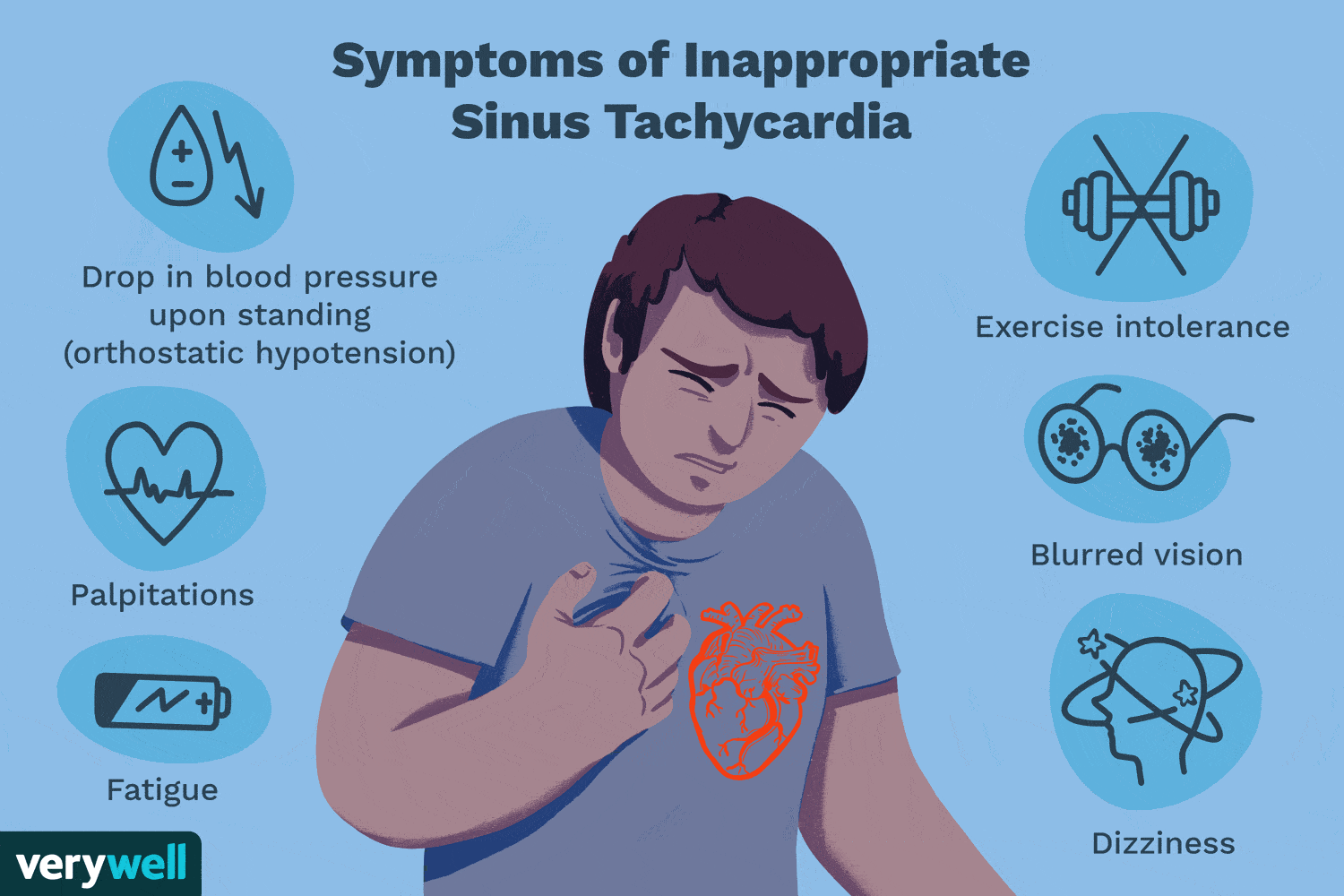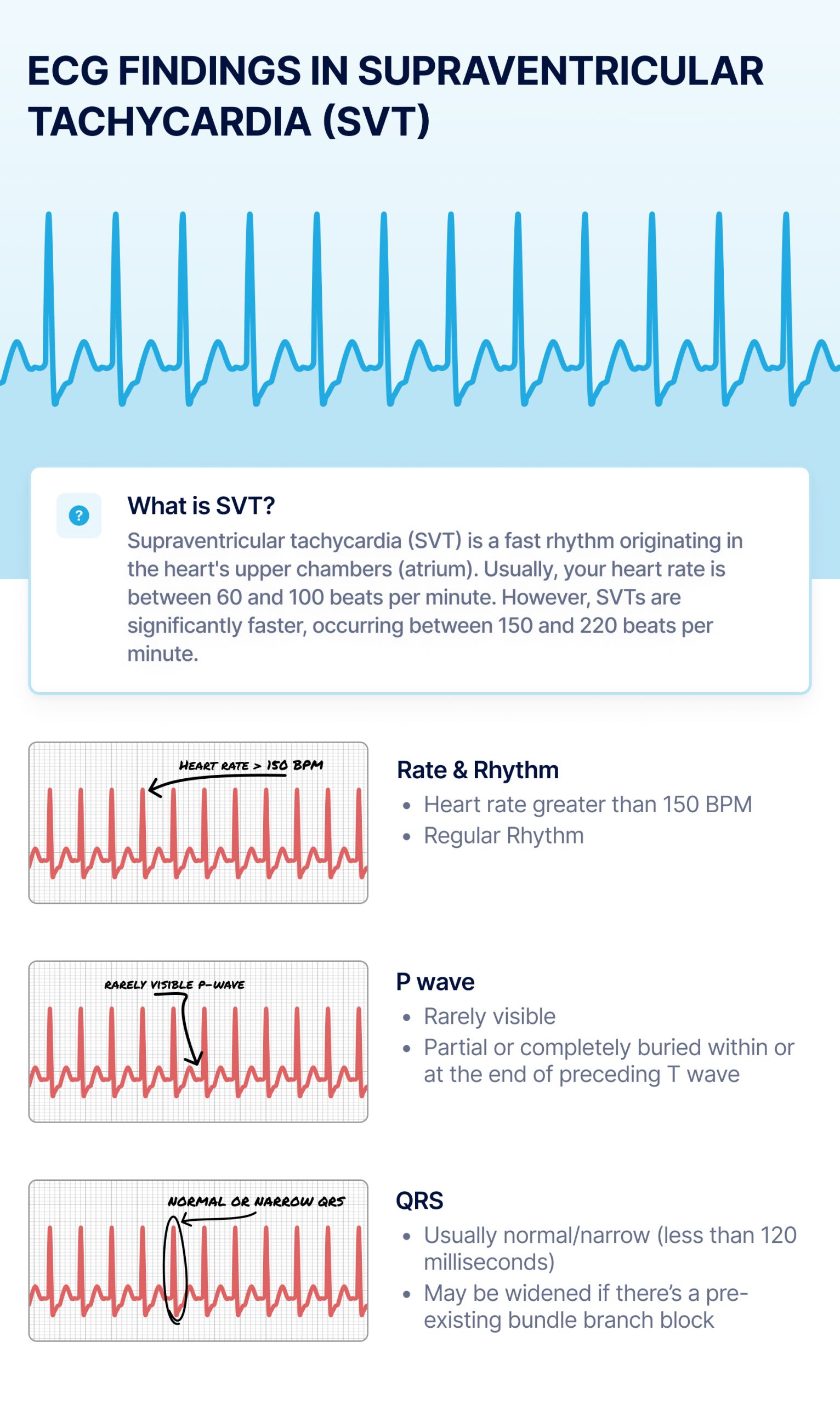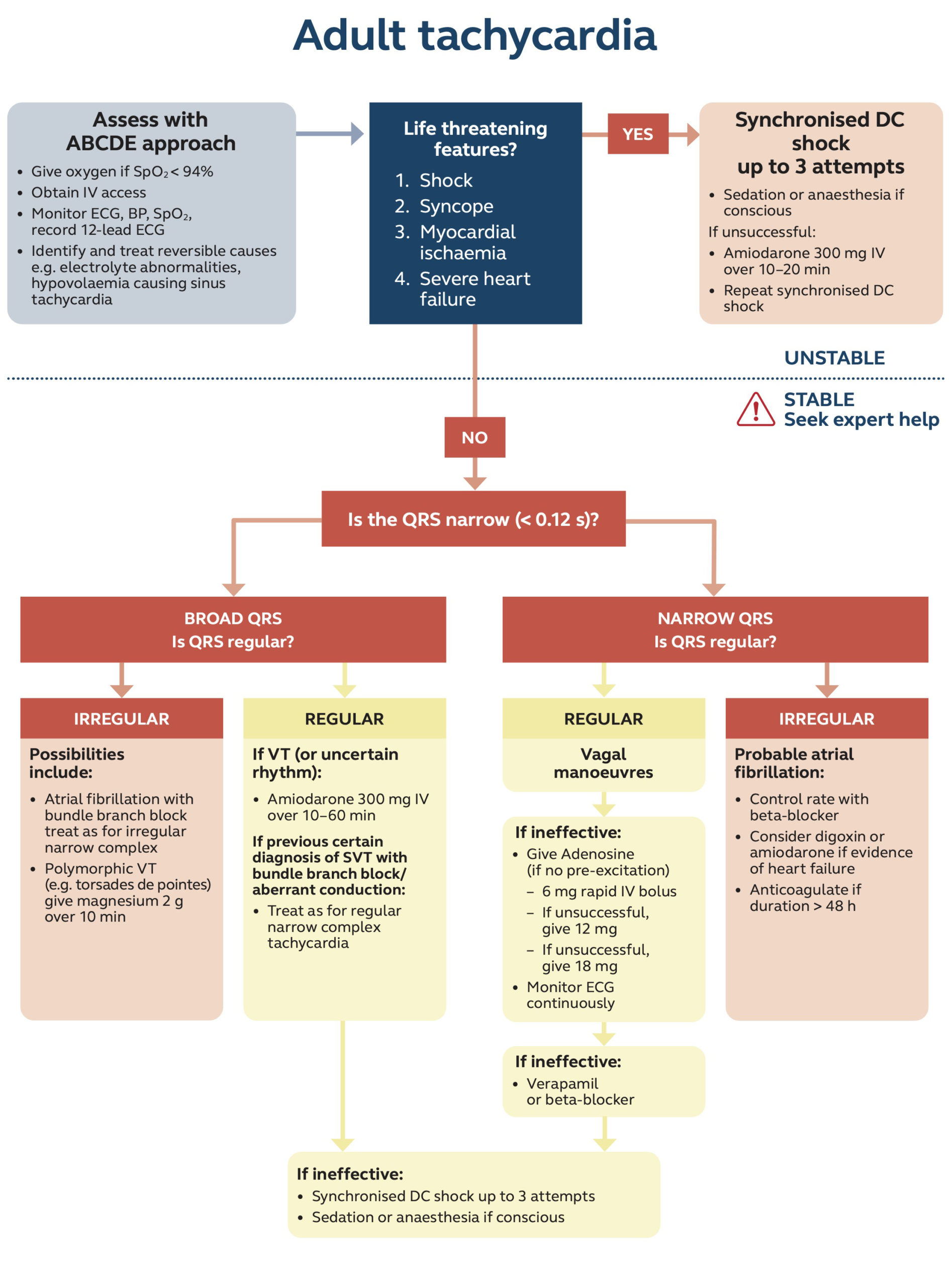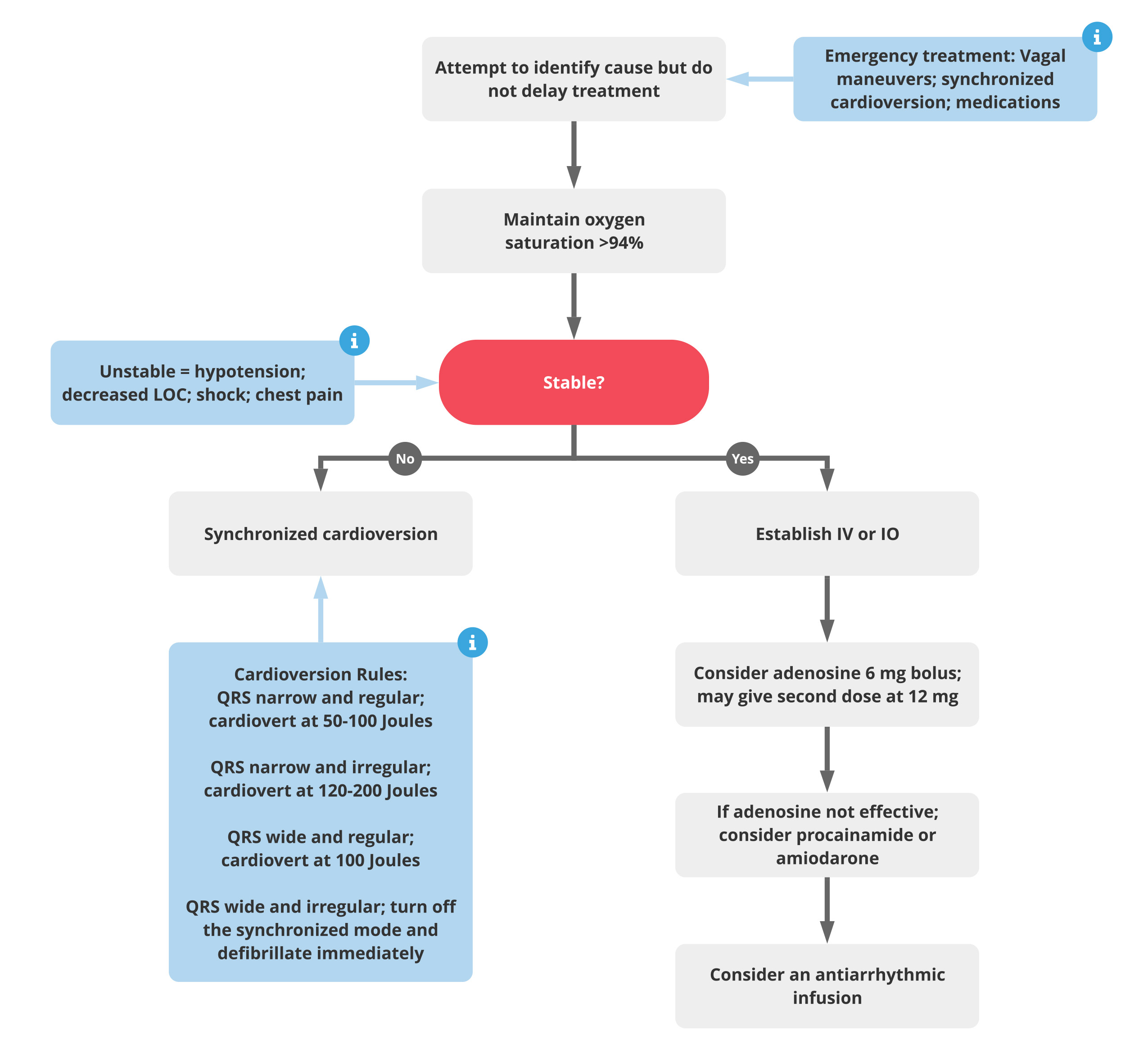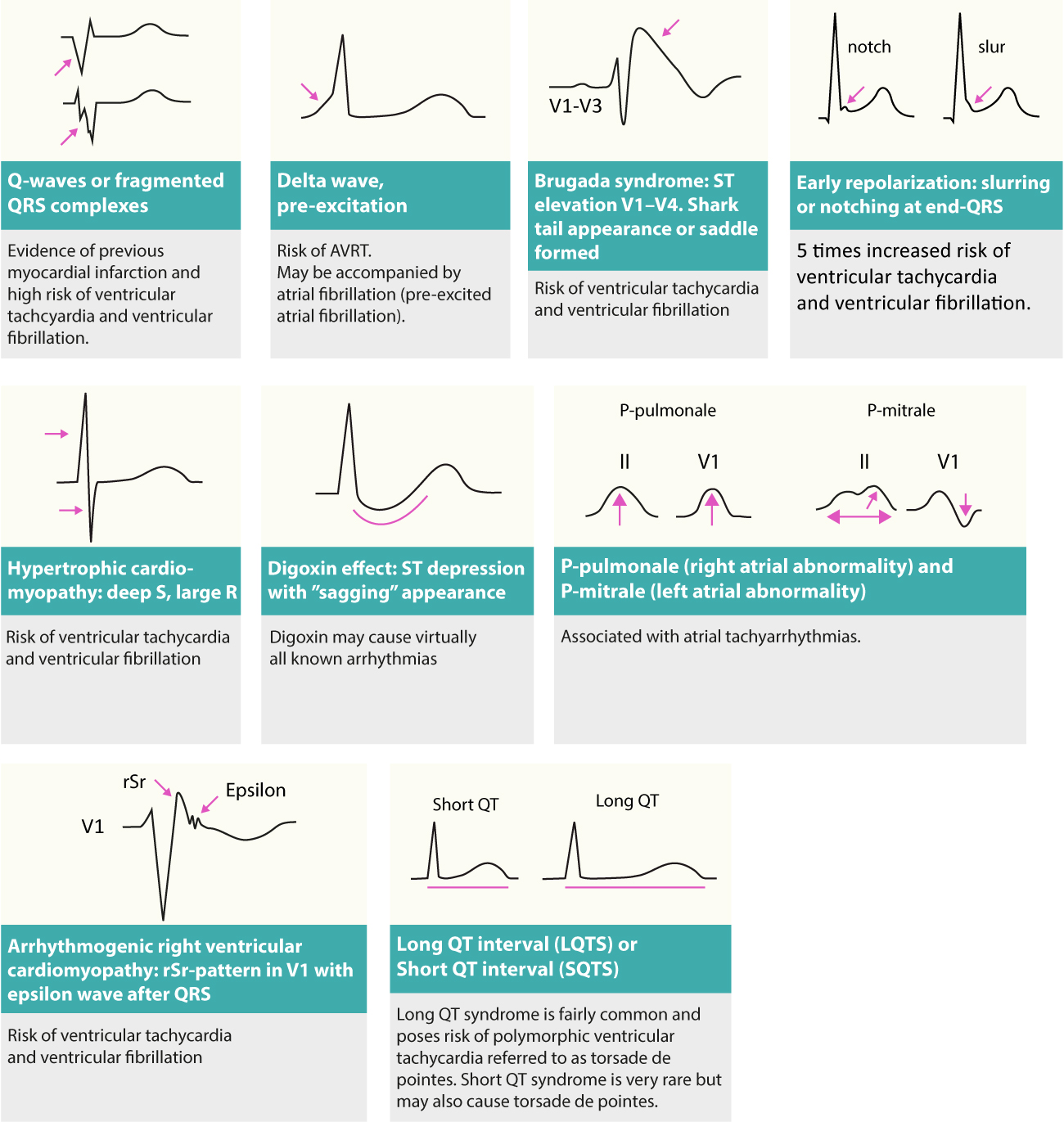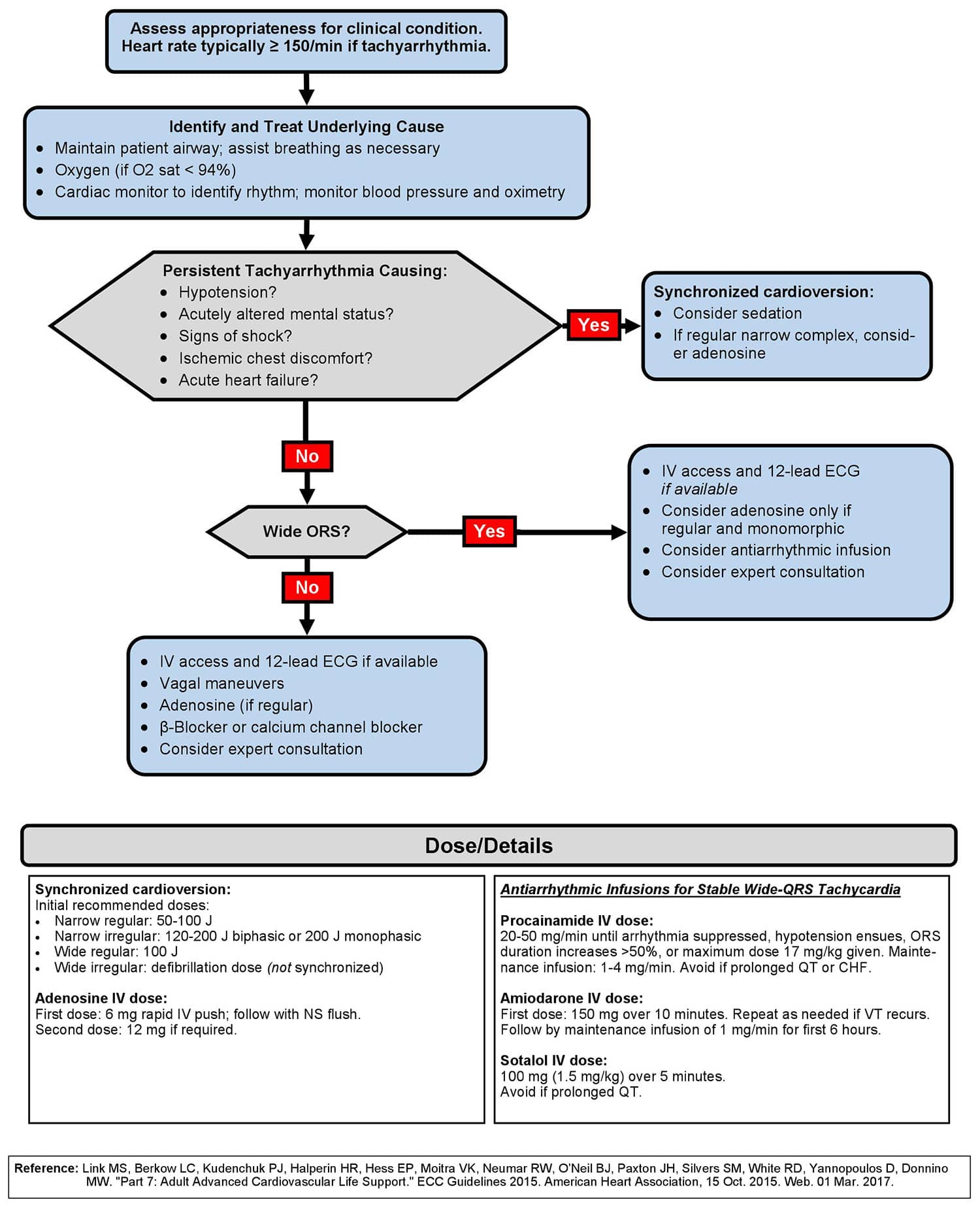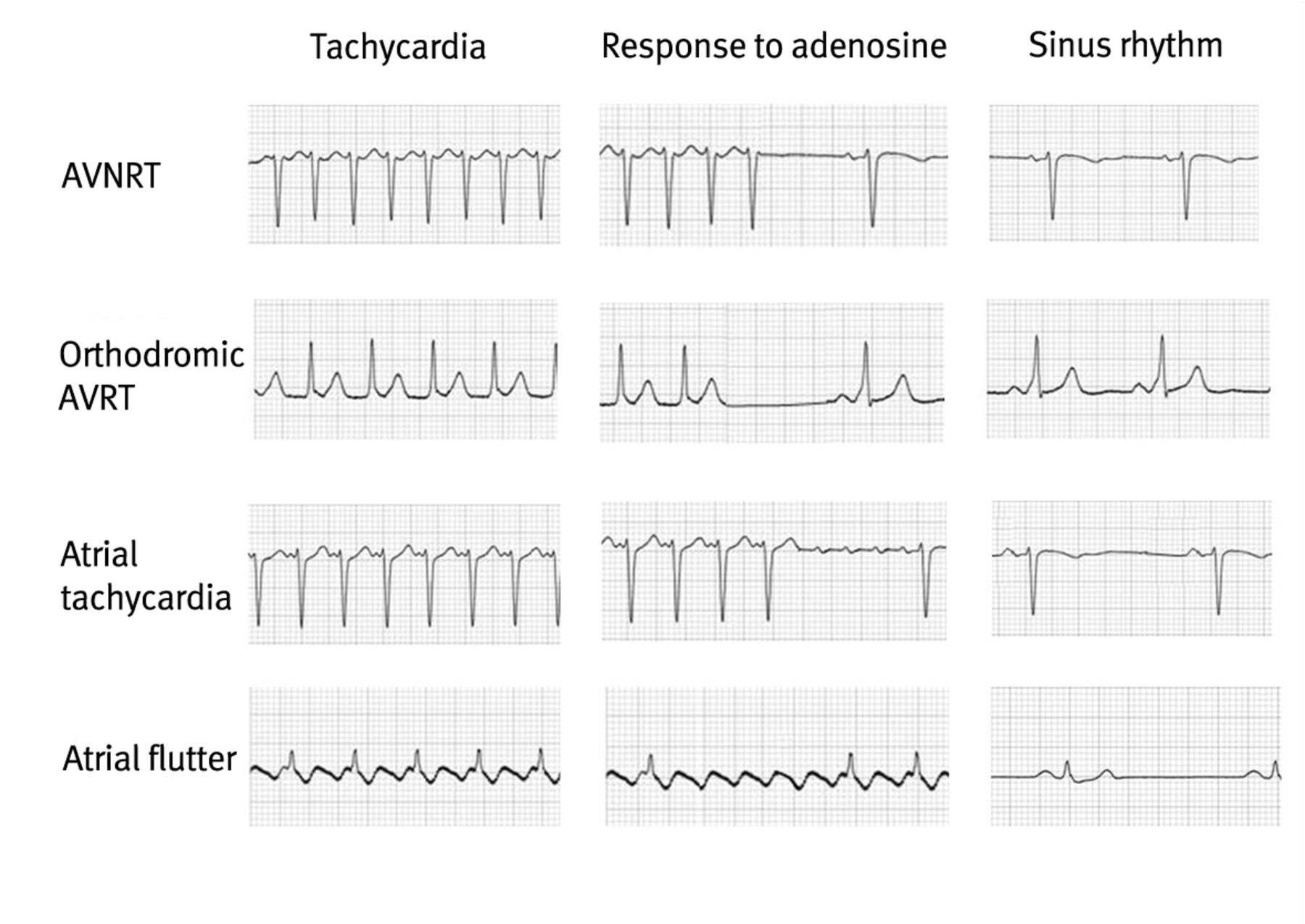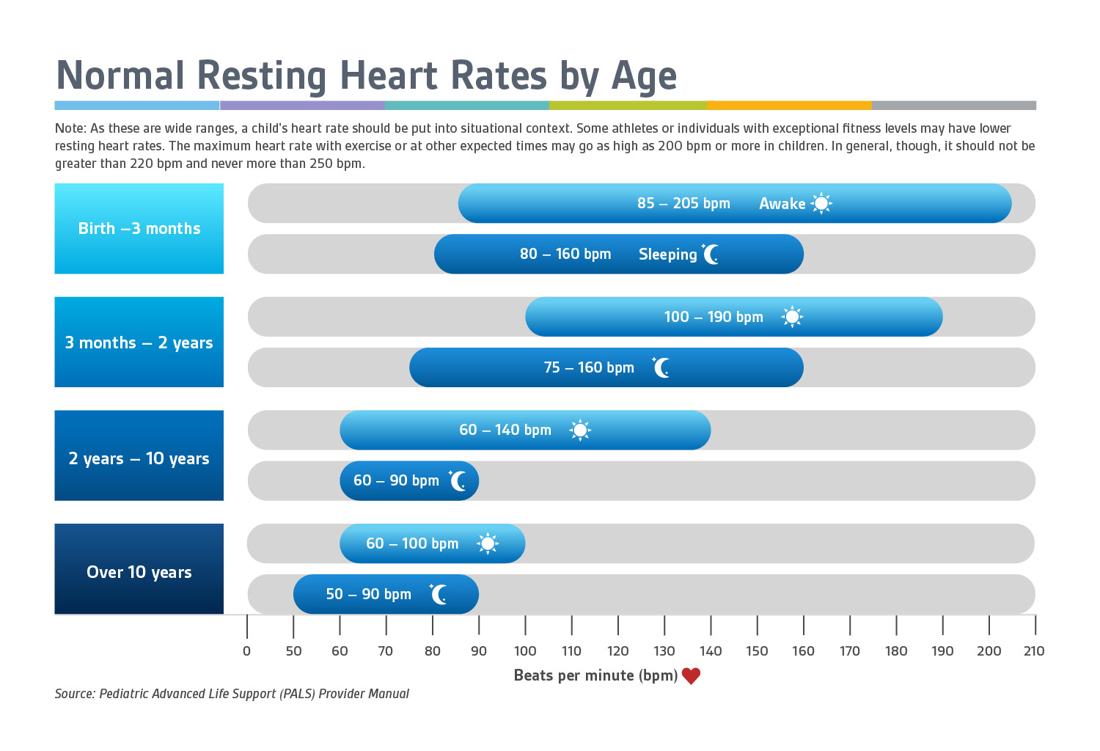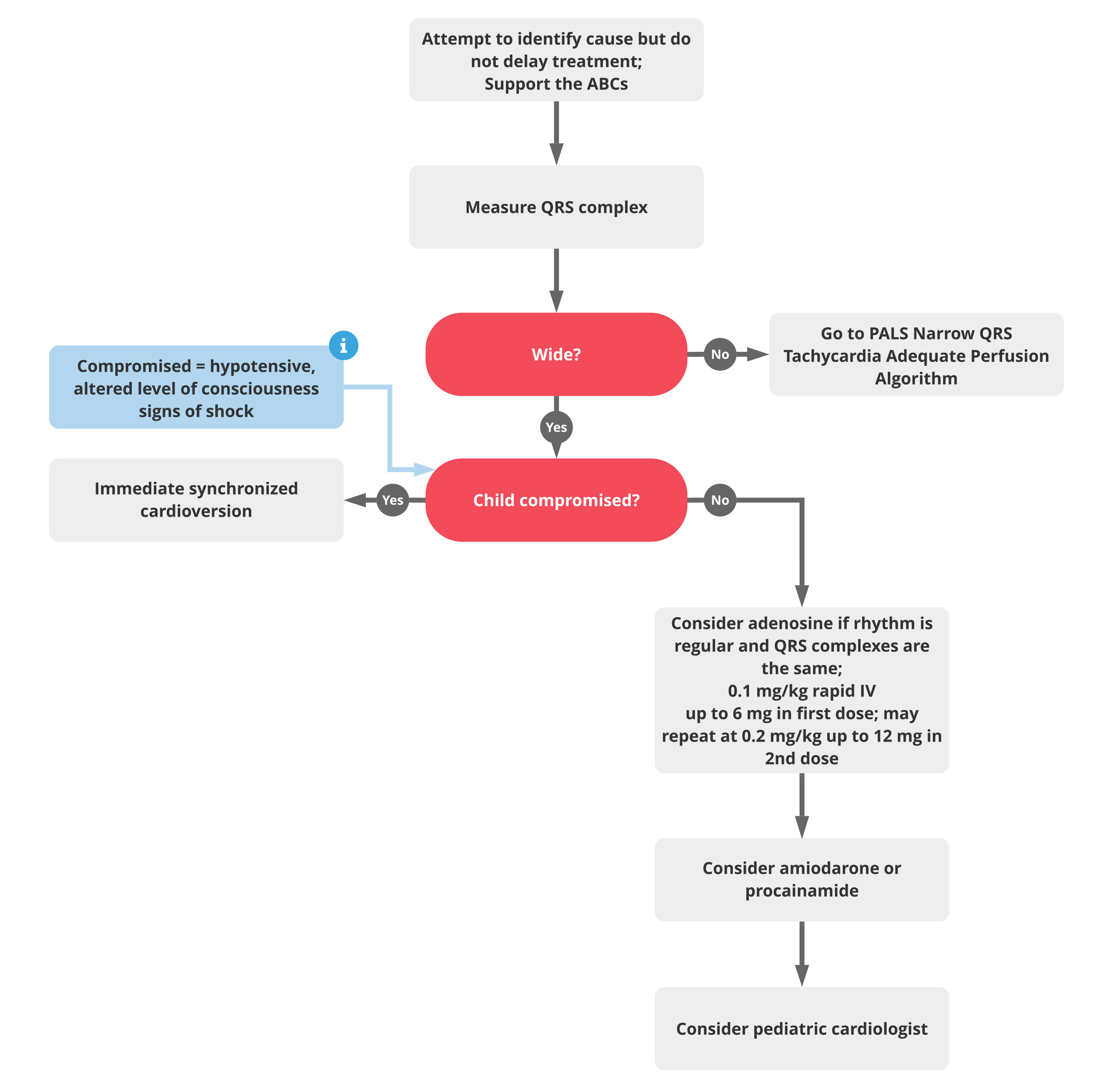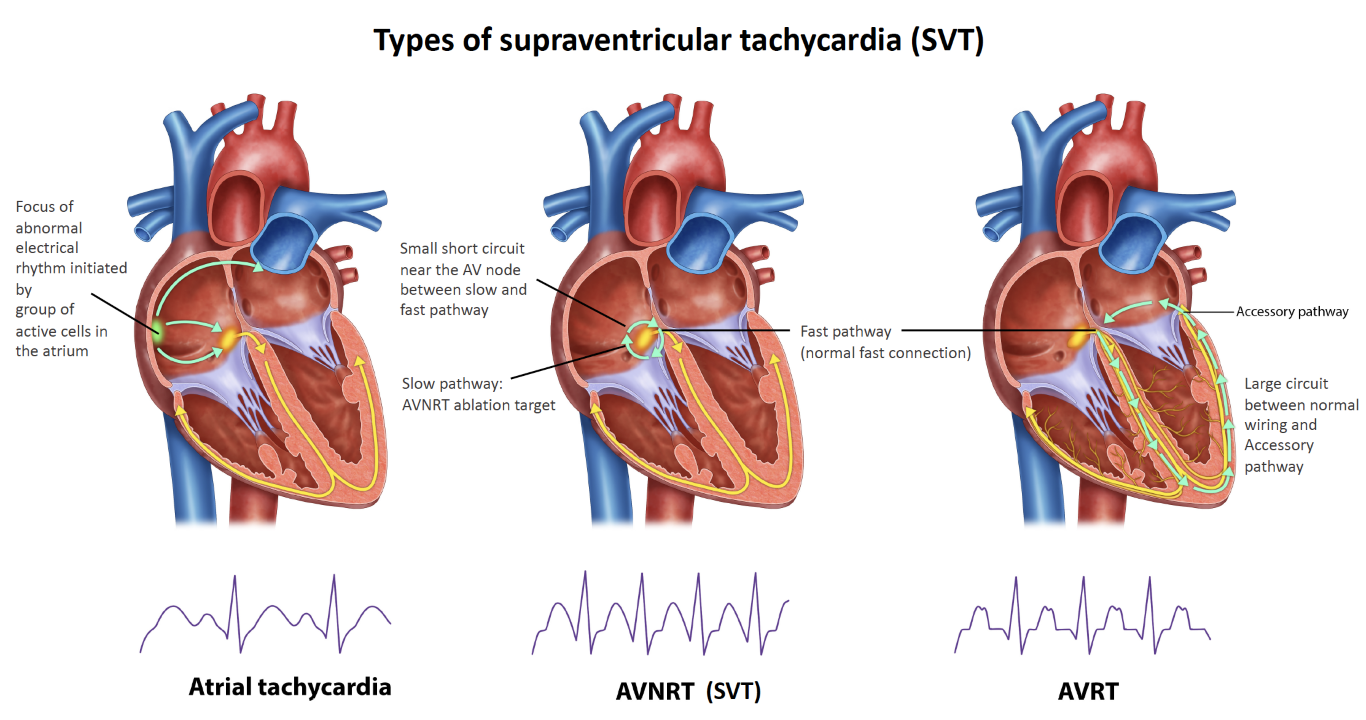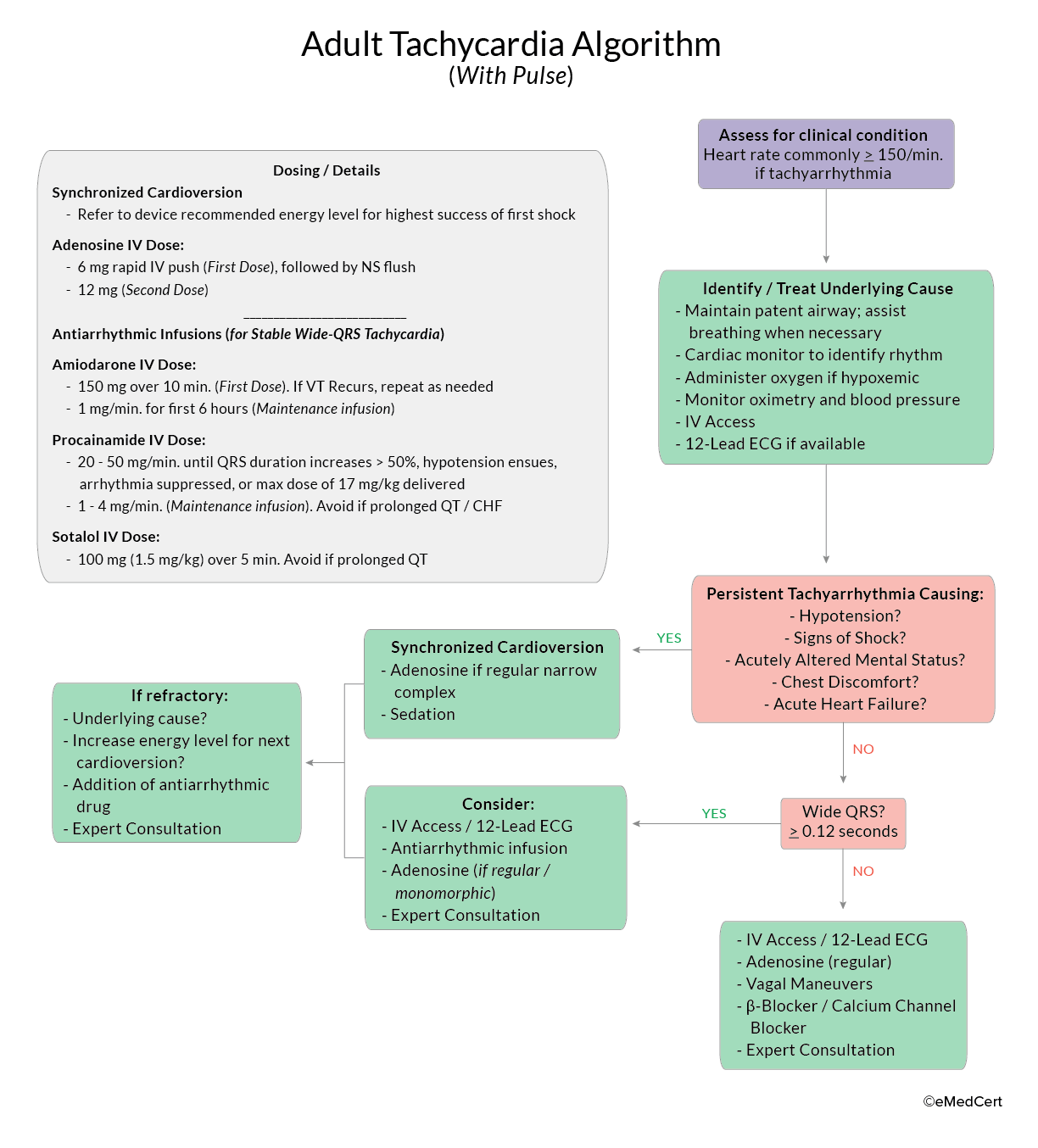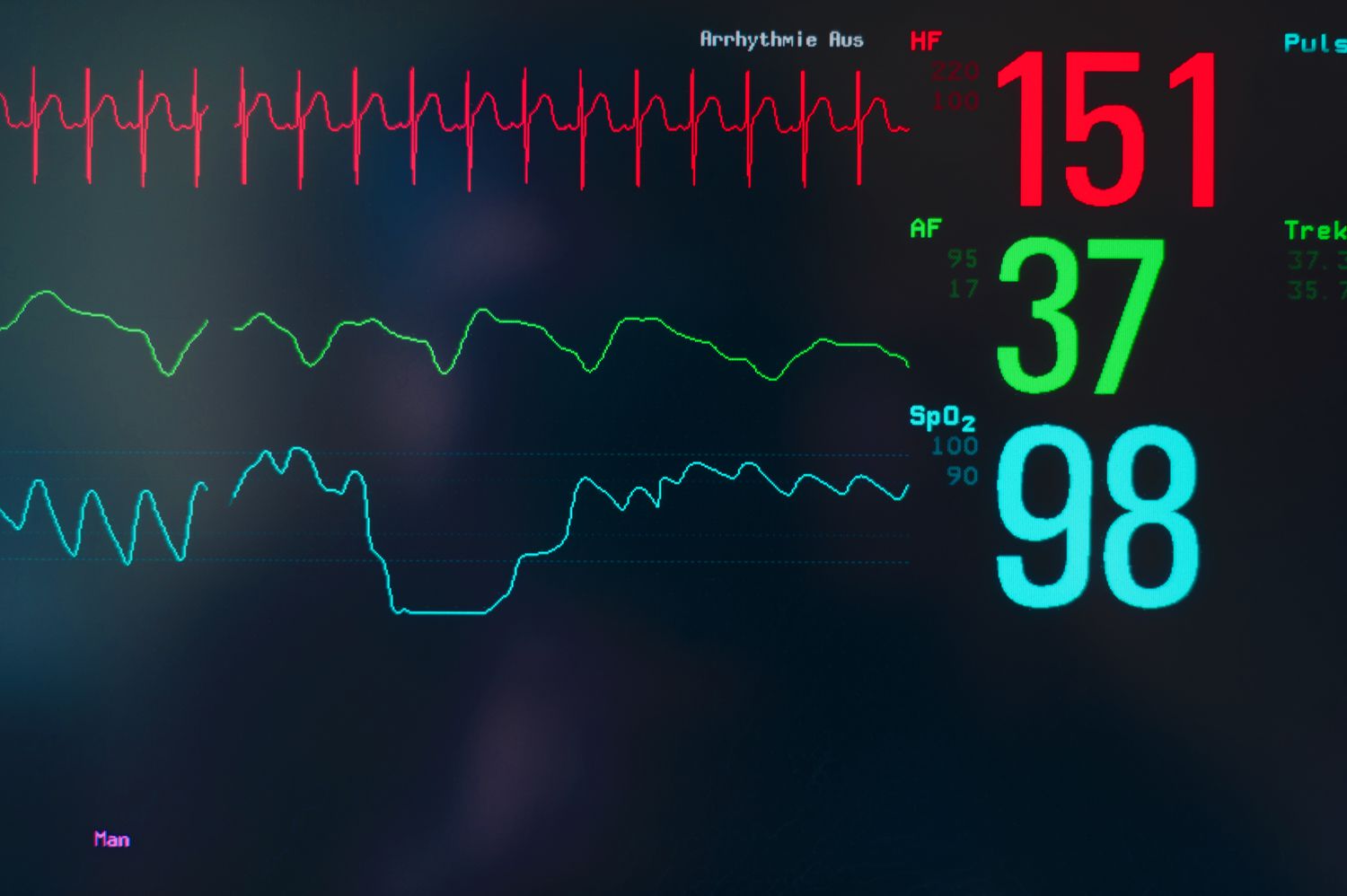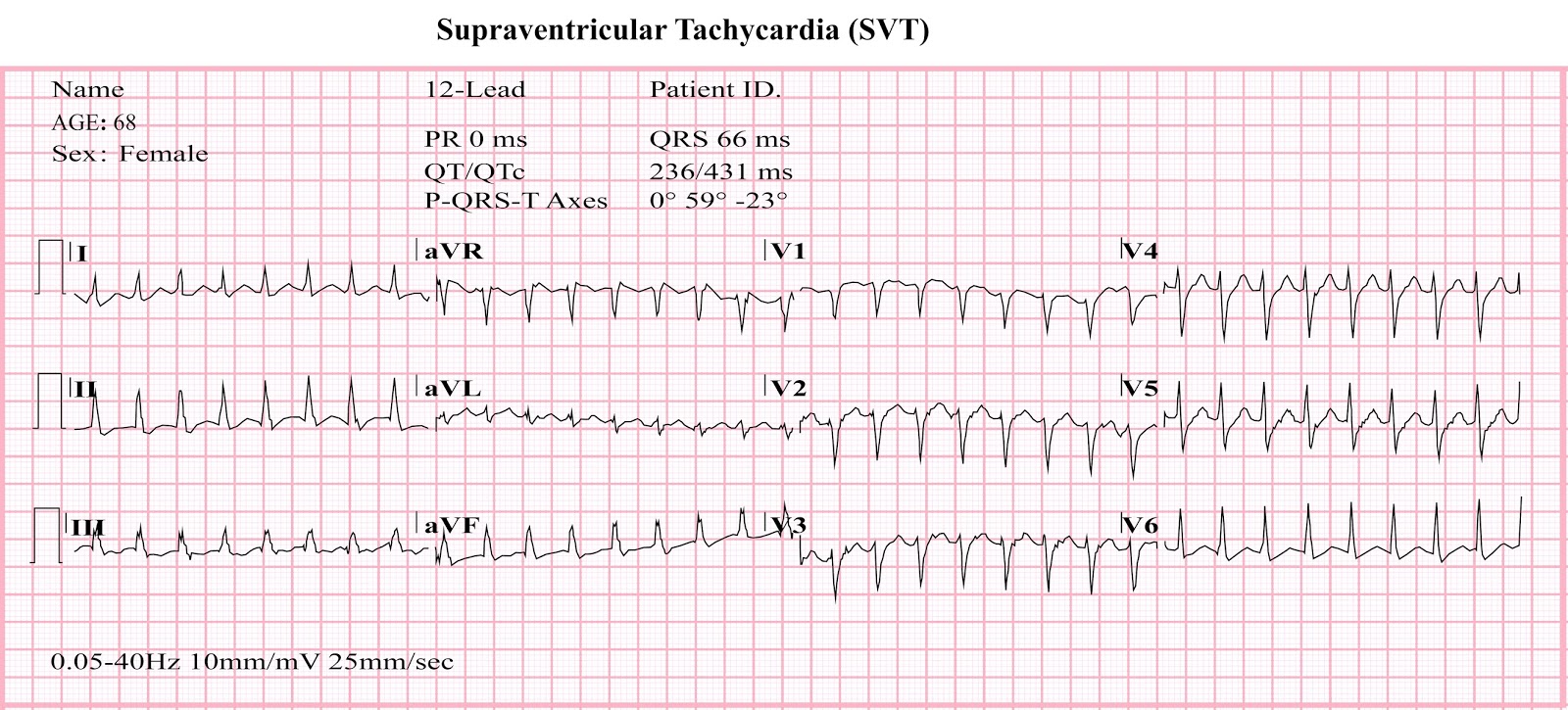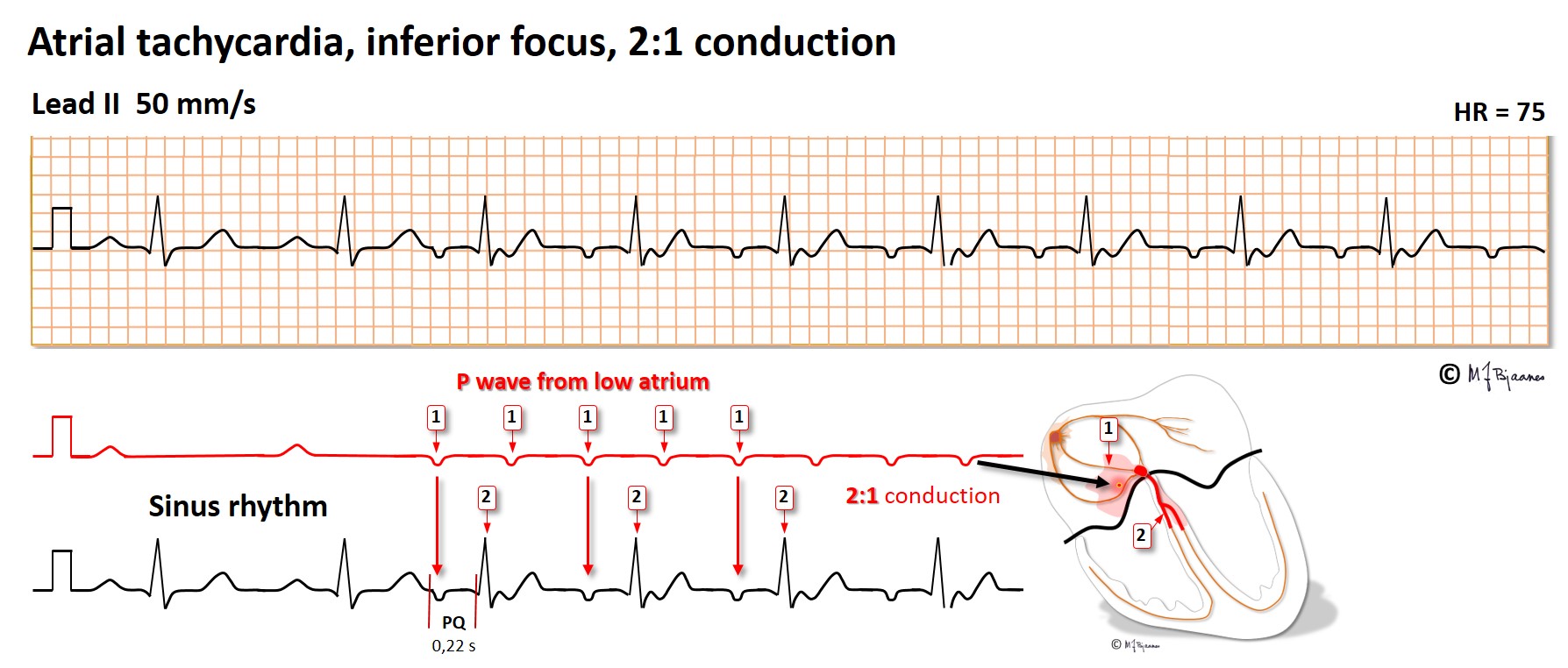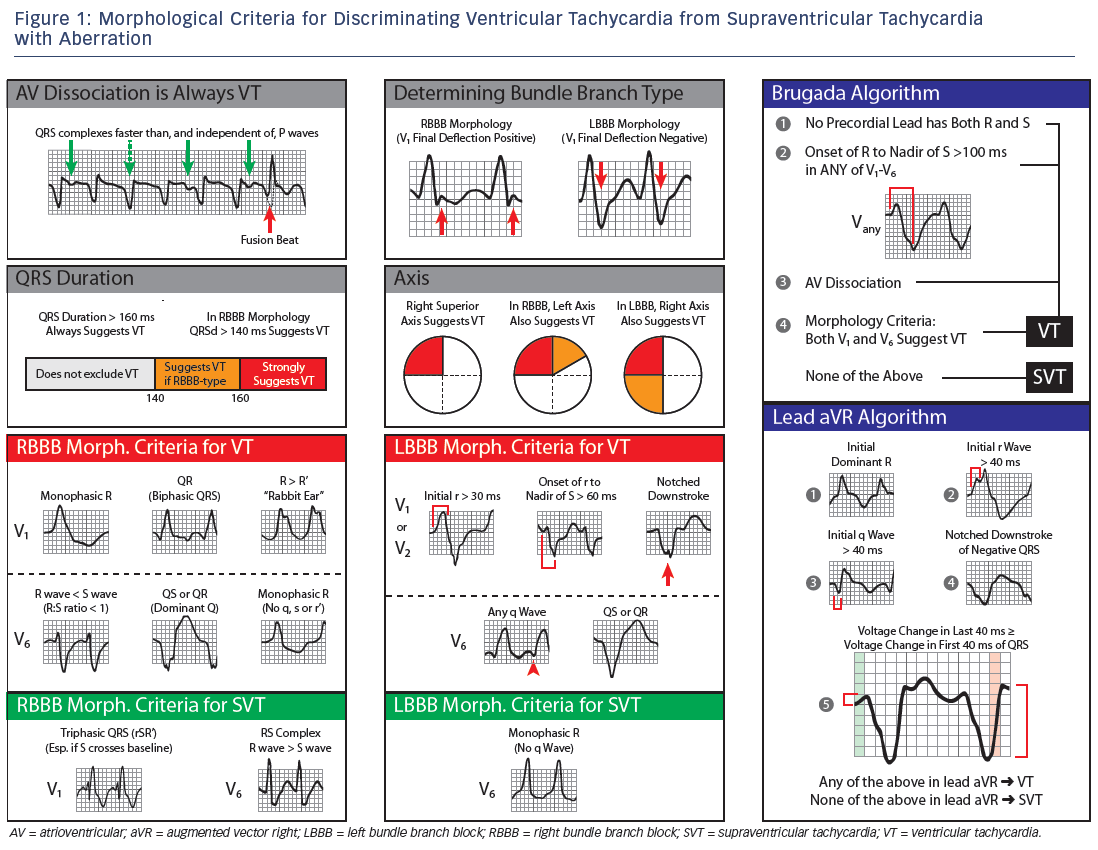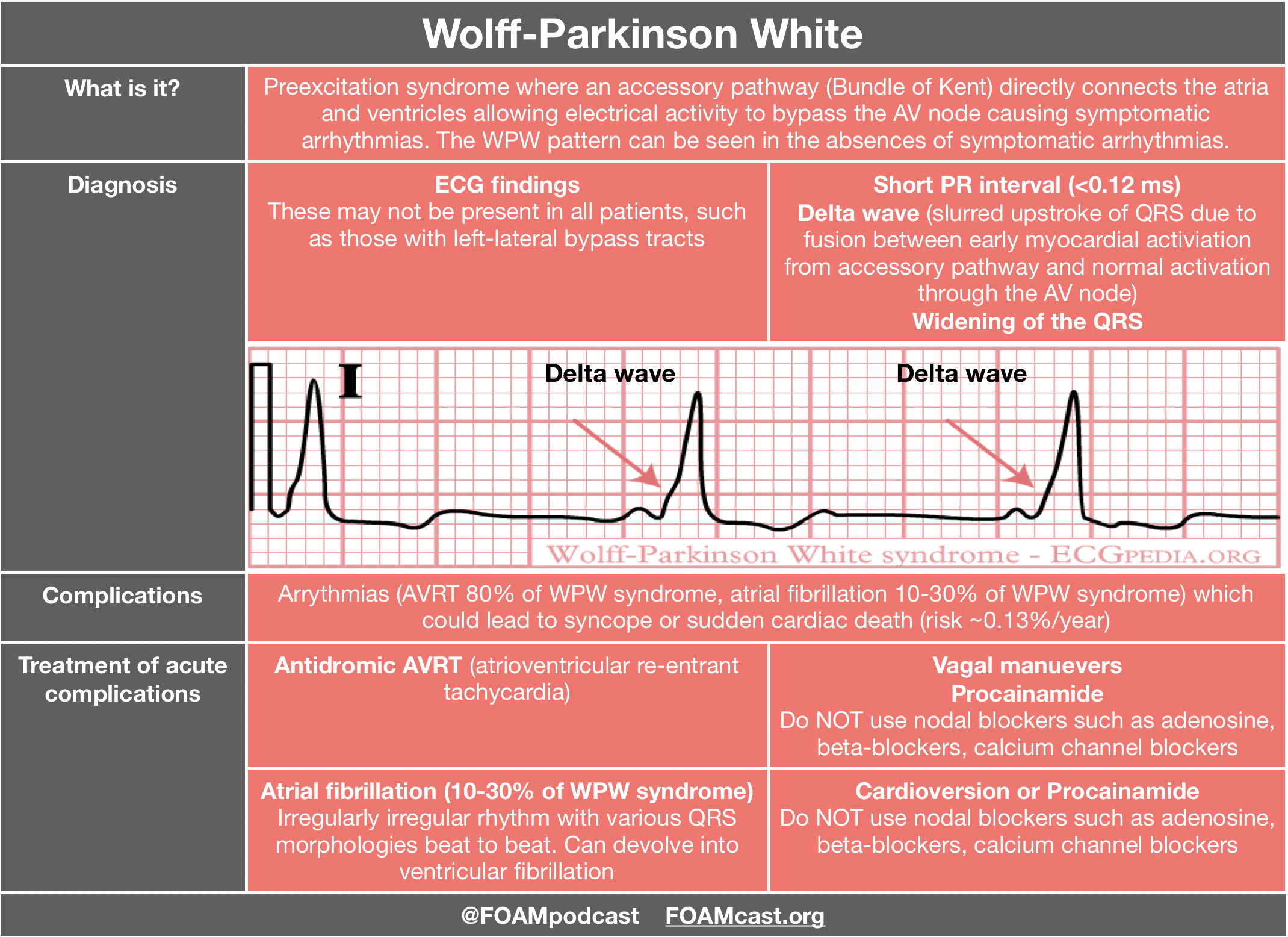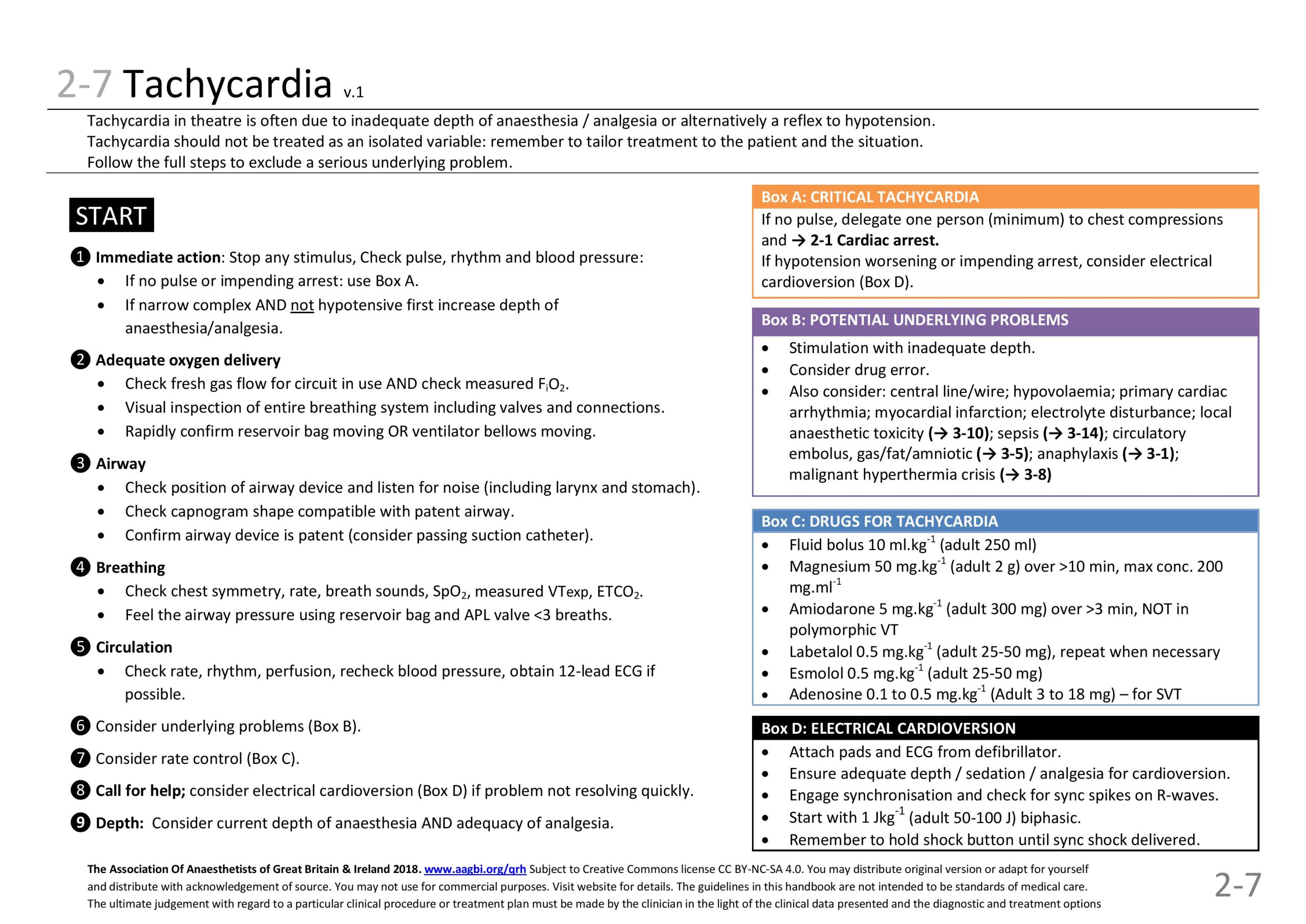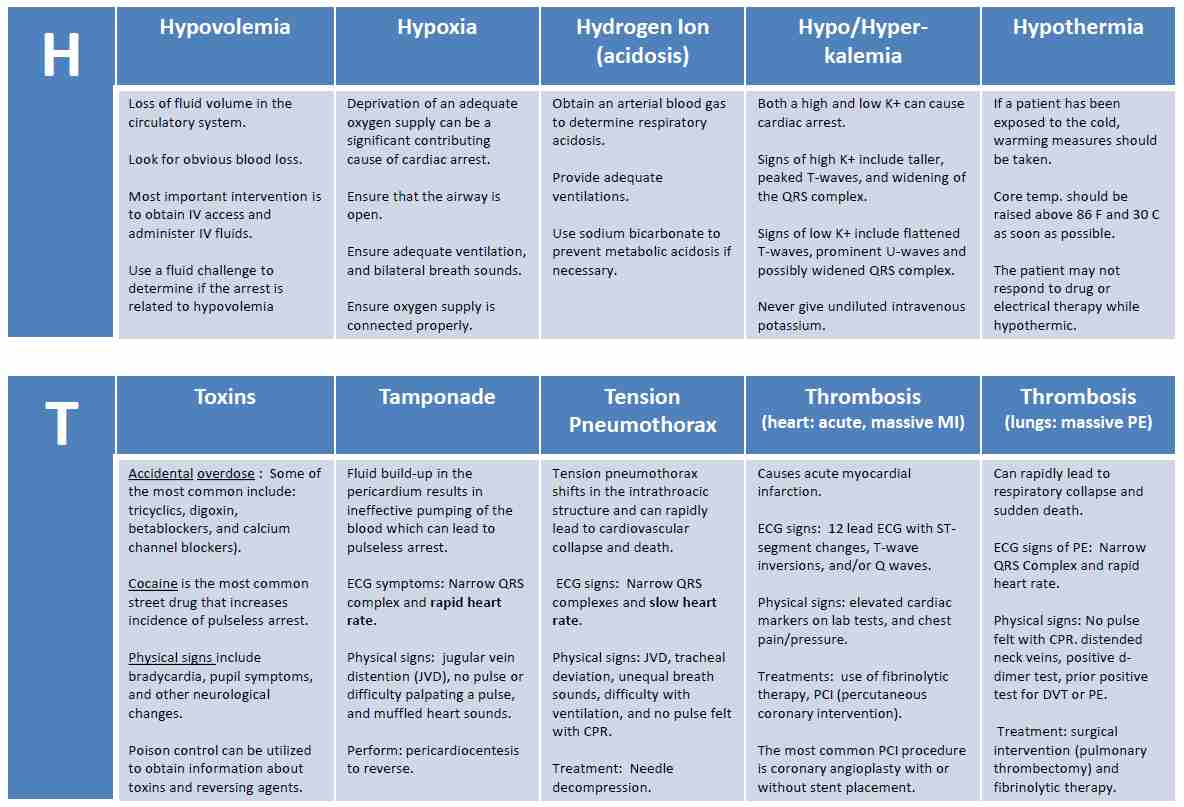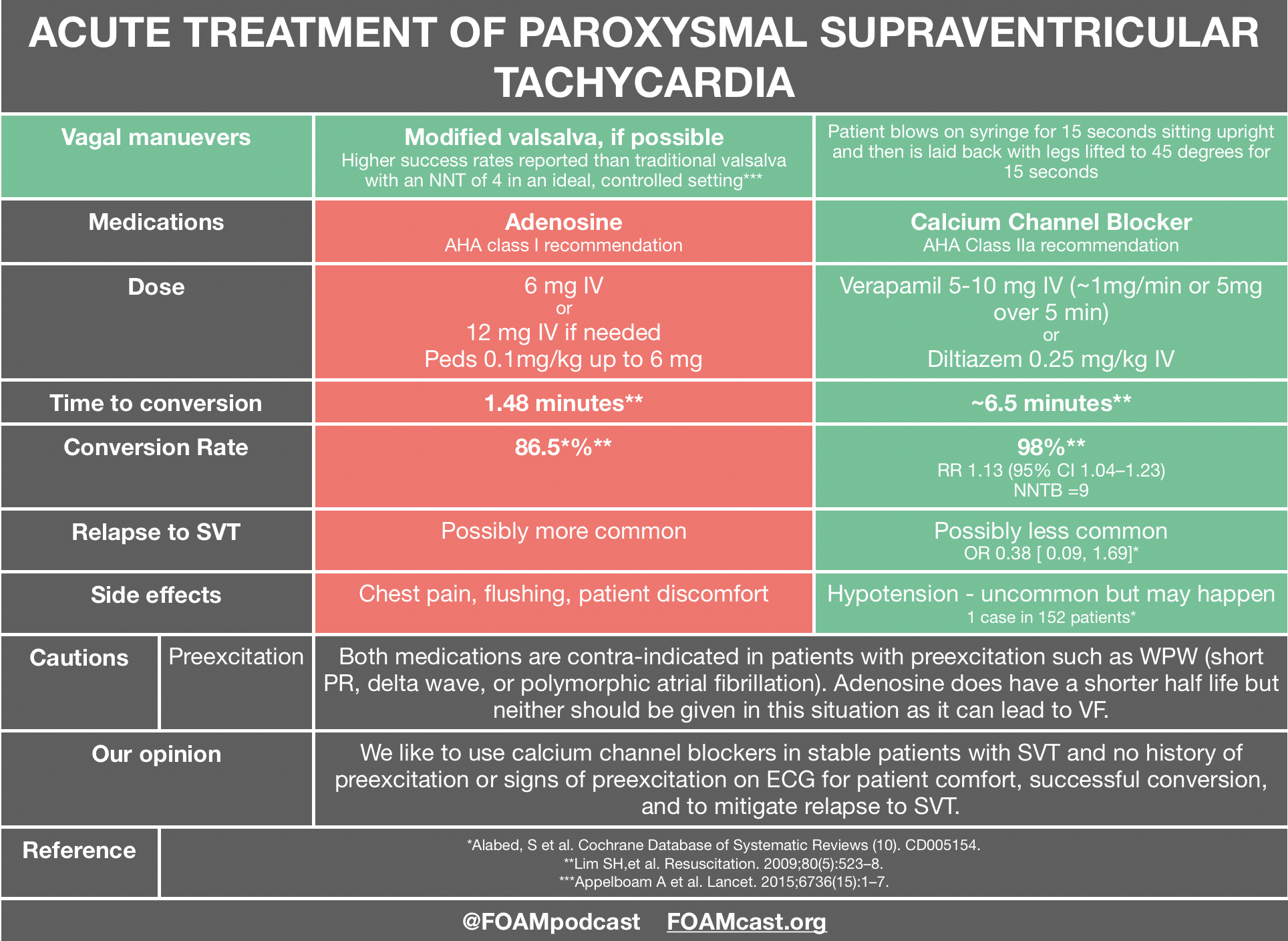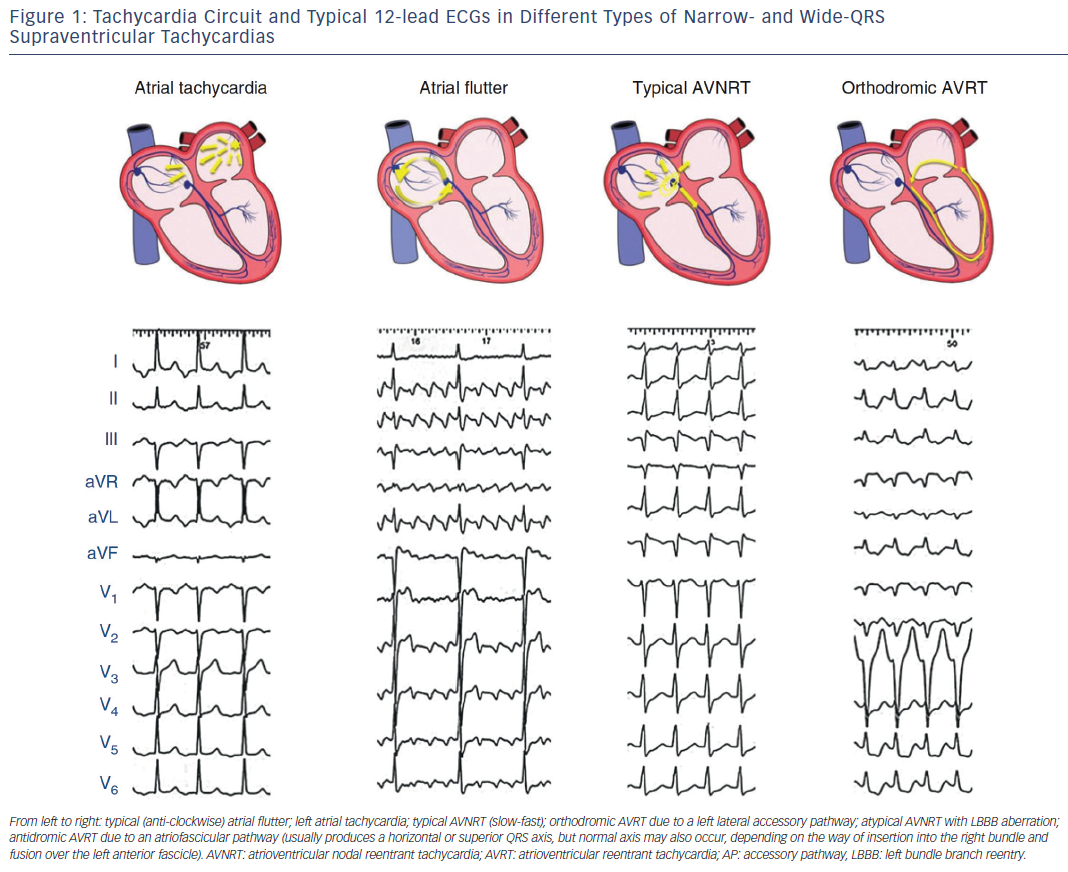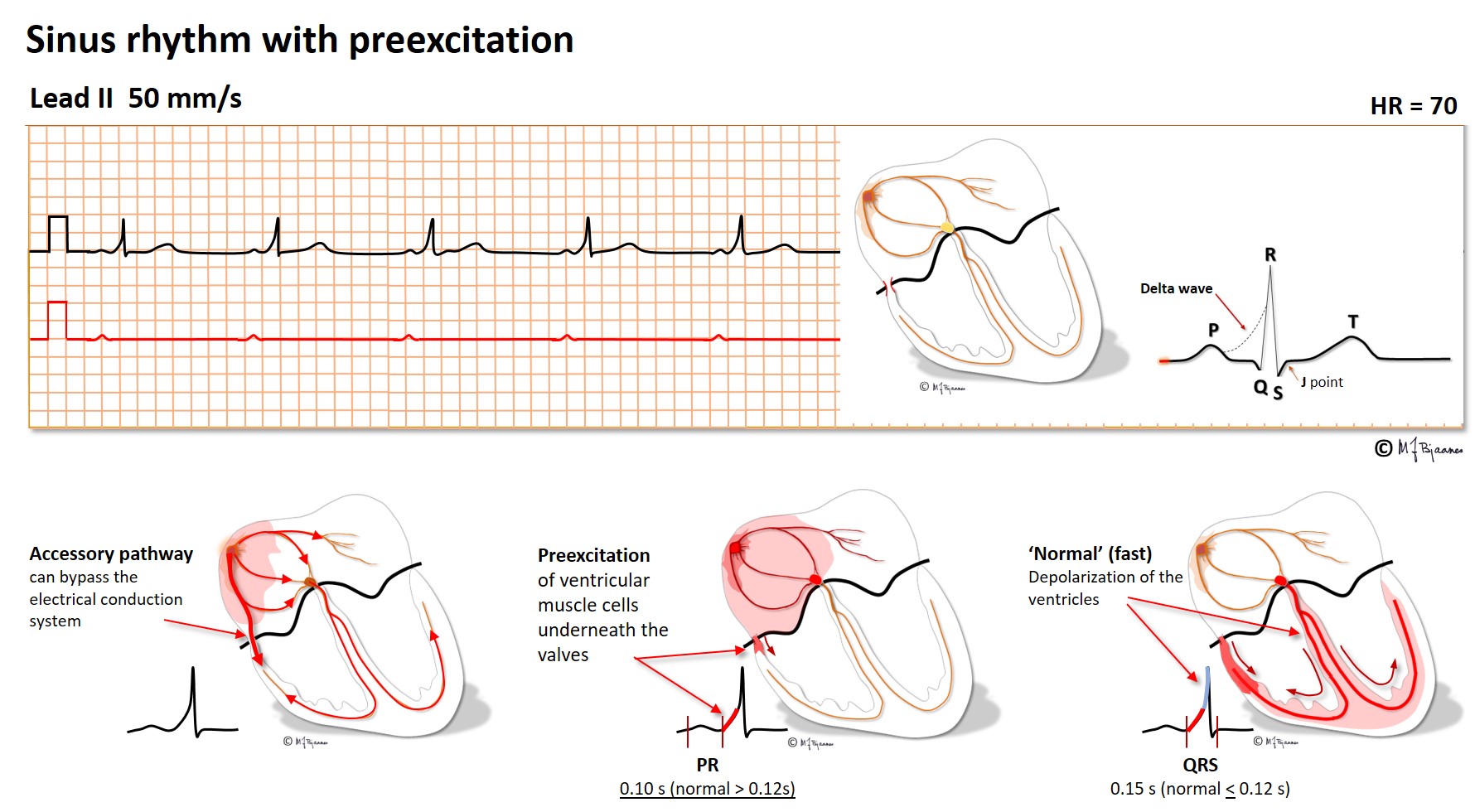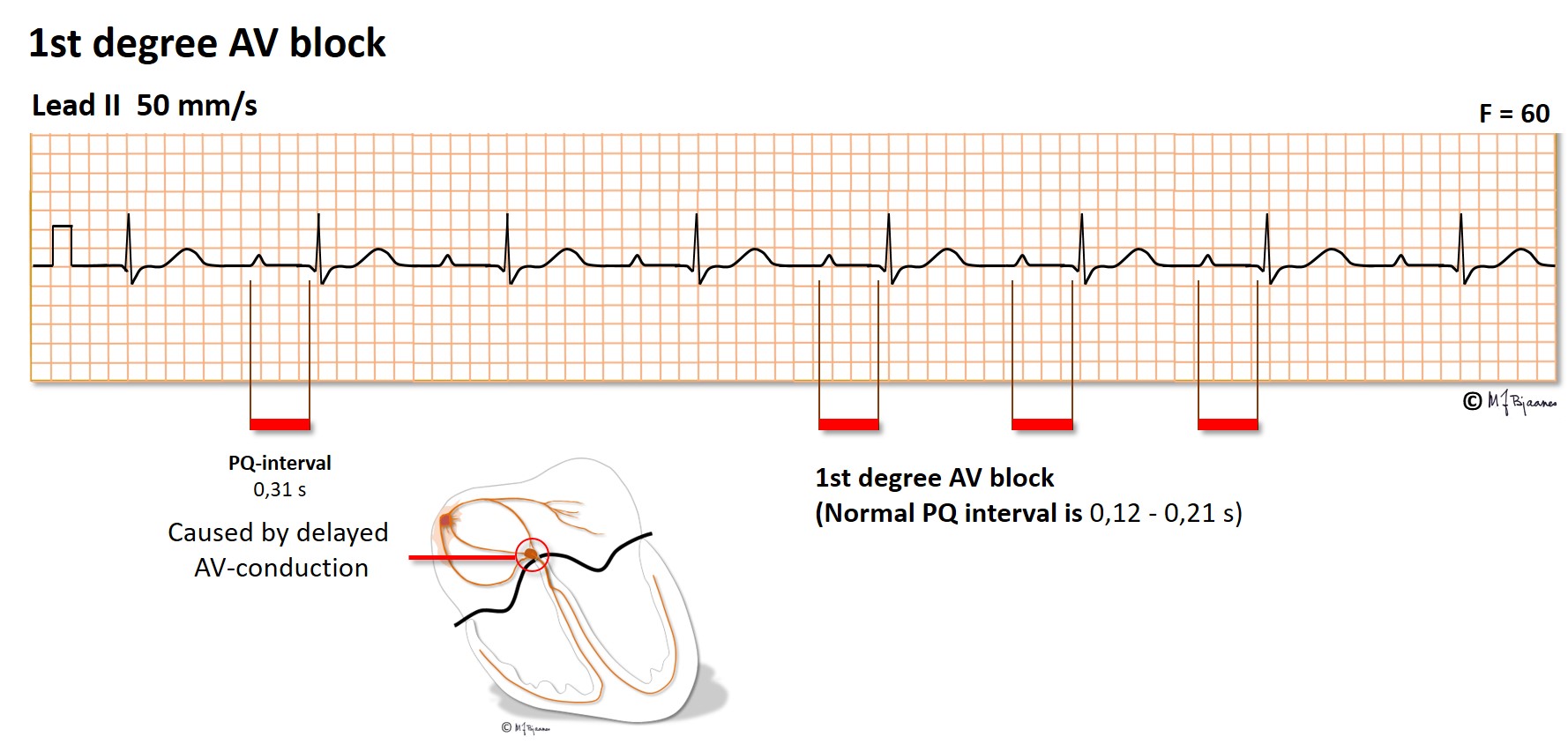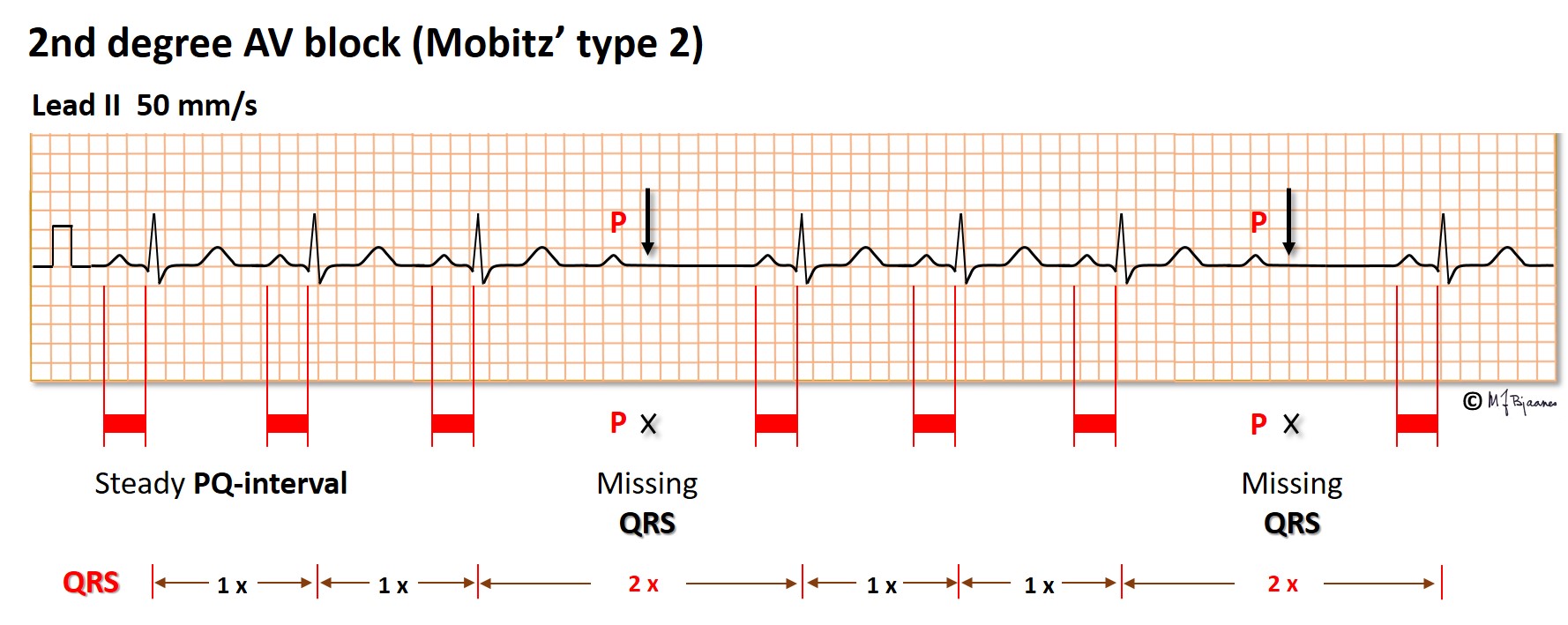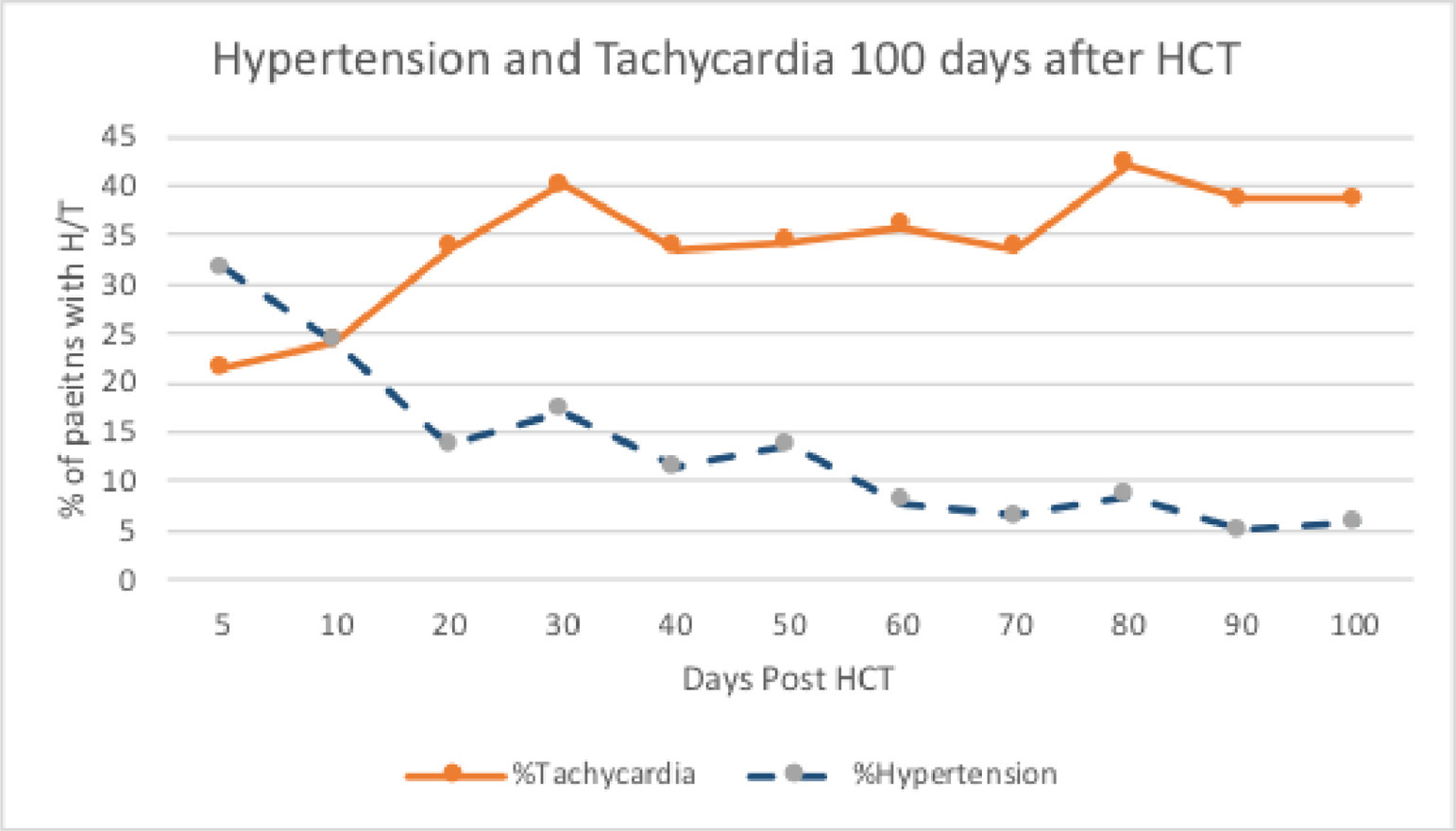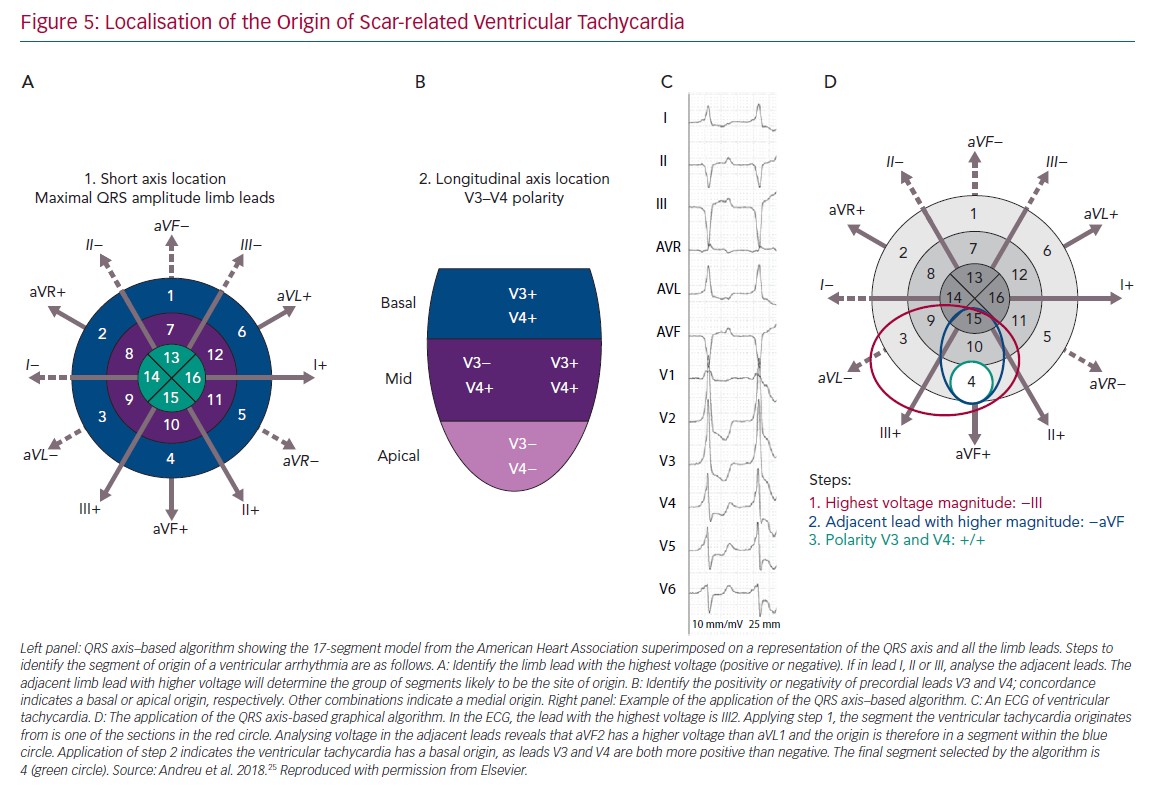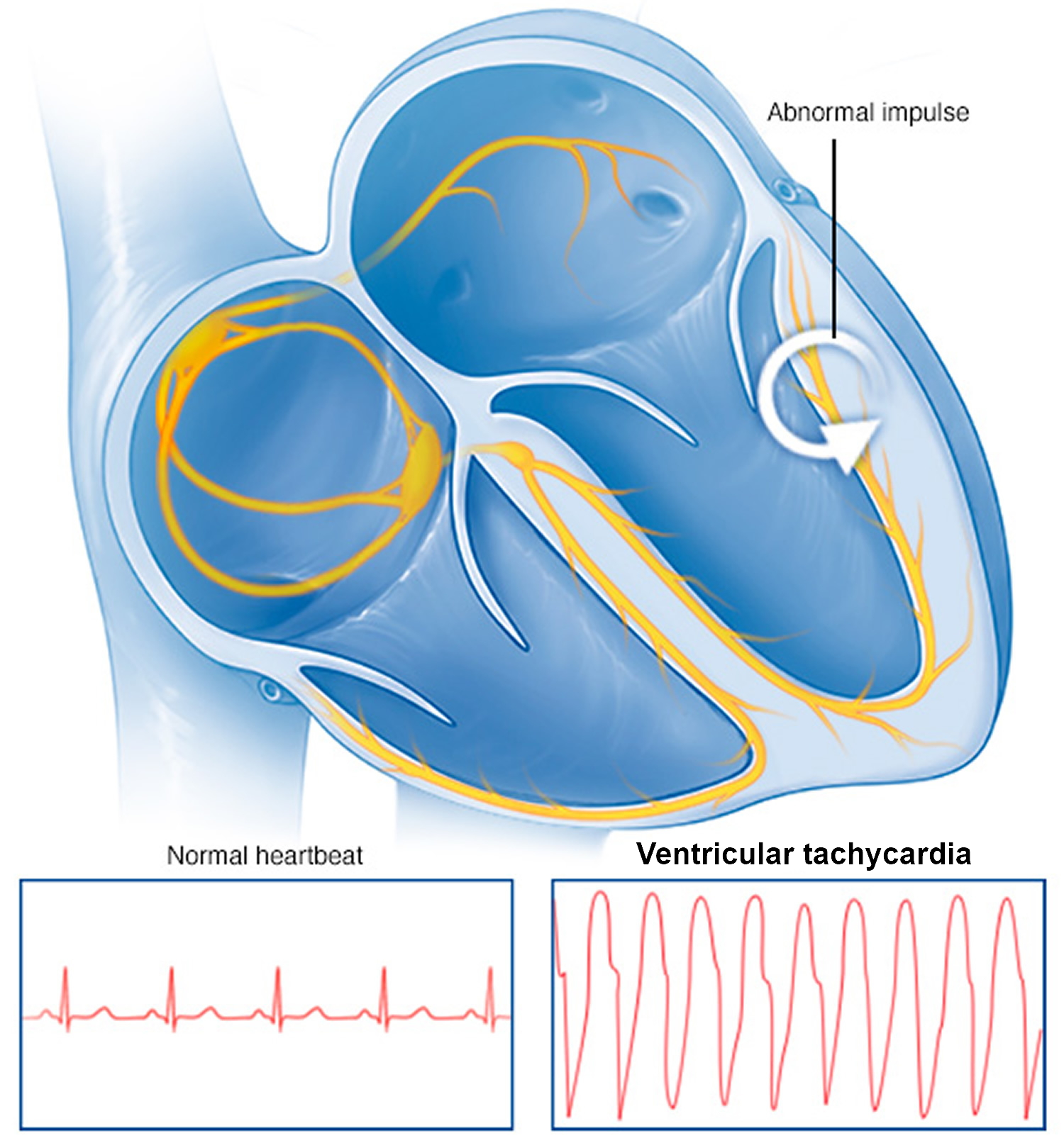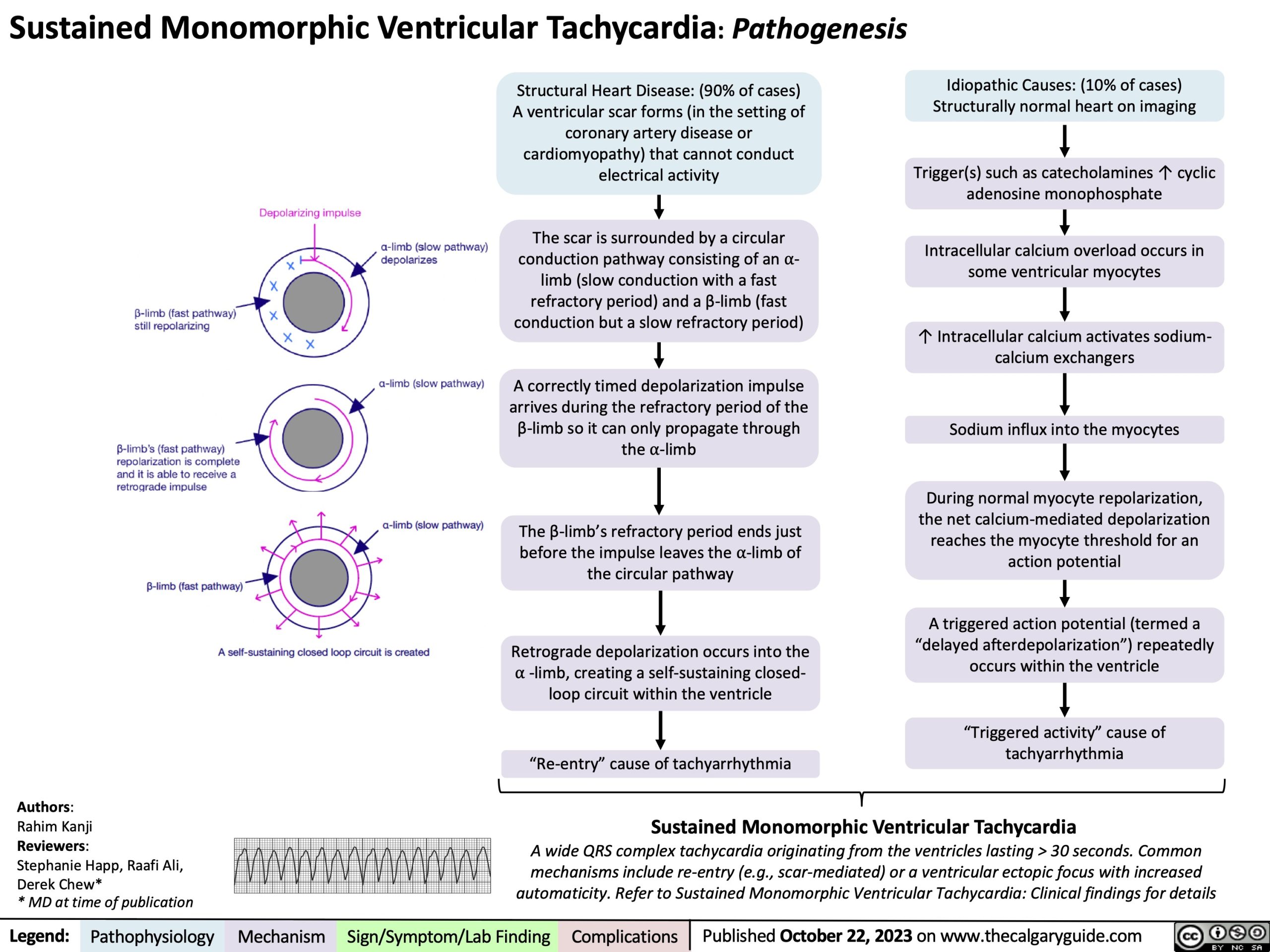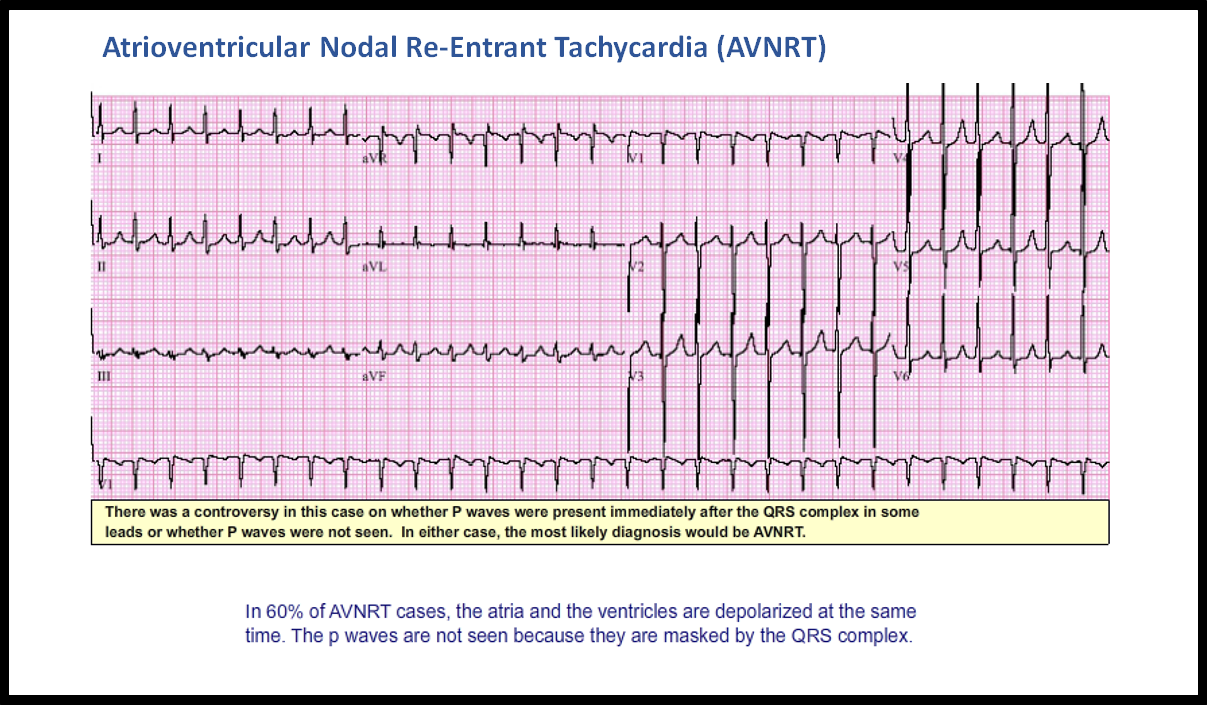
Key facts
- Tachycardia means that your heart is beating much faster than normal, usually more than 100 beats per minute.
- Sinus tachycardia is your body’s normal response to stress.
- Supraventricular tachycardia and ventricular tachycardia can be dangerous or even life-threatening.
What is tachycardia (fast heart rate)?
Tachycardia means that your heart is beating faster than normal, usually more than 100 beats per minute. Some forms of tachycardia are normal, while others can signify disease or be life-threatening.
Your heart’s job is to pump blood round your body in order to move oxygen and nutrients to your organs, and to remove waste from those organs..
It’s normal for your heart to beat faster during exercise or as a response to stress. This is to supply your organs with more blood than while you’re resting and relaxed. Sometimes a fast heart rate can be abnormal and needs urgent medical attention.
What are the types of tachycardia (fast heart rate)?
There are 3 types of tachycardia.
- Sinus tachycardia— This is when the natural pacemaker in your heart sends electrical signals faster than normal. This can be a normal response to certain stressful situations, or it can be a sign of anaemia, overactive thyroid gland or general ill health.
- Supraventricular (above the ventricle) tachycardia — This is when problems with the electrical signals in the upper chambers (atria) of your heart cause your heart to beat faster than usual. This reduces blood flow to the rest of your body, because your heart can’t pump blood as effectively. Some types of supraventricular tachycardia, including Wolff-Parkinson-White syndrome, are more common in young adults and may have a genetic cause. Two types of supraventricular tachycardia that become more common as you get older are atrial flutter and atrial fibrillation. These are often caused by coronary heart disease.
- Ventricular tachycardia — This is when problems with the electrical signals in the lower chambers (ventricles) of your heart cause your heart to beat faster. This affects its ability to pump blood to the rest of your body and can be life-threatening. It’s usually caused by coronary heart disease or cardiomyopathy (problems with your heart muscle).
What causes tachycardia (fast heart rate)?
Sometimes tachycardia is normal. Sinus tachycardia can be a normal, healthy response to stressors like fear, anxiety, strenuous exercise or even fever. This helps increase the blood flow around your body as needed, and not usually a concern.
But sometimes tachycardia signifies a health problem.
Causes of abnormal tachycardia include:
- anaemia
- some medicines
- overactive thyroid gland
- ischaemic heart disease or a heart attack
- other problems with your heart such as cardiomyopathy
What are the symptoms of tachycardia (fast heart rate)?
You may have no symptoms or you may feel:
- dizzy and light-headed
- palpitations — when you feel your heart pounding or beating irregularly
- short of breath
- chest pain
In severe situations, tachycardia can cause you to fall unconscious.
How is tachycardia diagnosed?
If you notice your heart racing or beating irregularly, you should see your doctor.
Your doctor will ask about your symptoms, and examine you.
Tests to diagnose tachycardia include:
- Electrocardiogram (ECG) — This test measures your heart’s electrical signals and the timing and duration of each electrical phase in your heartbeat.
- Holter monitor — An ECG monitor worn wherever you go for 24 hours to record your heart rhythm.
- Exercise stress test — This test monitors how your heart rate and rhythm respond to different levels of physical activity.
- Echocardiogram — This is a type of ultrasound that looks at the structure of your heart valves, walls and chambers.
How is tachycardia (fast heart rate) treated?
Sinus tachycardia during exercise or stress is normal and doesn’t need treatment.
The treatment for abnormal tachycardia depends on the cause, but could include:
- changes to your lifestyle:
- reducing stress
- drinking less caffeine or alcohol
- quitting smoking
- getting enough sleep
- medicines to slow your heart rate
- medicines to prevent your abnormal rhythm
- treatment of medical conditions leading to the abnormal rhythm (for example, treating an overactive thyroid)
- techniques such as the Valsalva manoeuvre for supraventricular tachycardia
- cardioversion — doctors give your heart an electric shock to reset the abnormal rhythm
If you have ventricular tachycardia and are very unwell, your doctors may need to shock your heart into the correct rhythm with a defibrillator. If you are at risk of this happening again, your doctor may recommend having an implantable cardioverter defibrillator (ICD) implanted. This device can automatically deliver a small shock to your heart when you need it to normalise your heart rhythm.
Some people might need a catheter ablation procedure. In this procedure, a small catheter is inserted through a large blood vessel in the groin and threaded through your veins to reach the heart. The electrical ‘circuit’ causing the irregular heart rhythm is then identified and disrupted using radiofrequency heat or other techniques.
What are the complications of tachycardia?
If you have sinus tachycardia with no underlying medical cause, you’re unlikely to have any complications. Whatever has caused your sinus tachycardia will go away, and your heart rate will return to normal.
If not treated, other types of abnormal tachycardia can lead to:
- stroke
- heart failure
- cardiac arrest
How is tachycardia (fast heart rate) prevented?
Some causes of tachycardia can’t be prevented.
A healthy lifestyle, with a good diet and regular exercise, can help you maintain a healthy weight, and reduce your chances of developing heart disease and associated abnormal tachycardia.
Where can I get help?
If you have any non-urgent concerns about your heart:
- See your doctor without delay.
- Use the healthdirect Symptom Checker.
- Read more about keeping your heart healthy.
